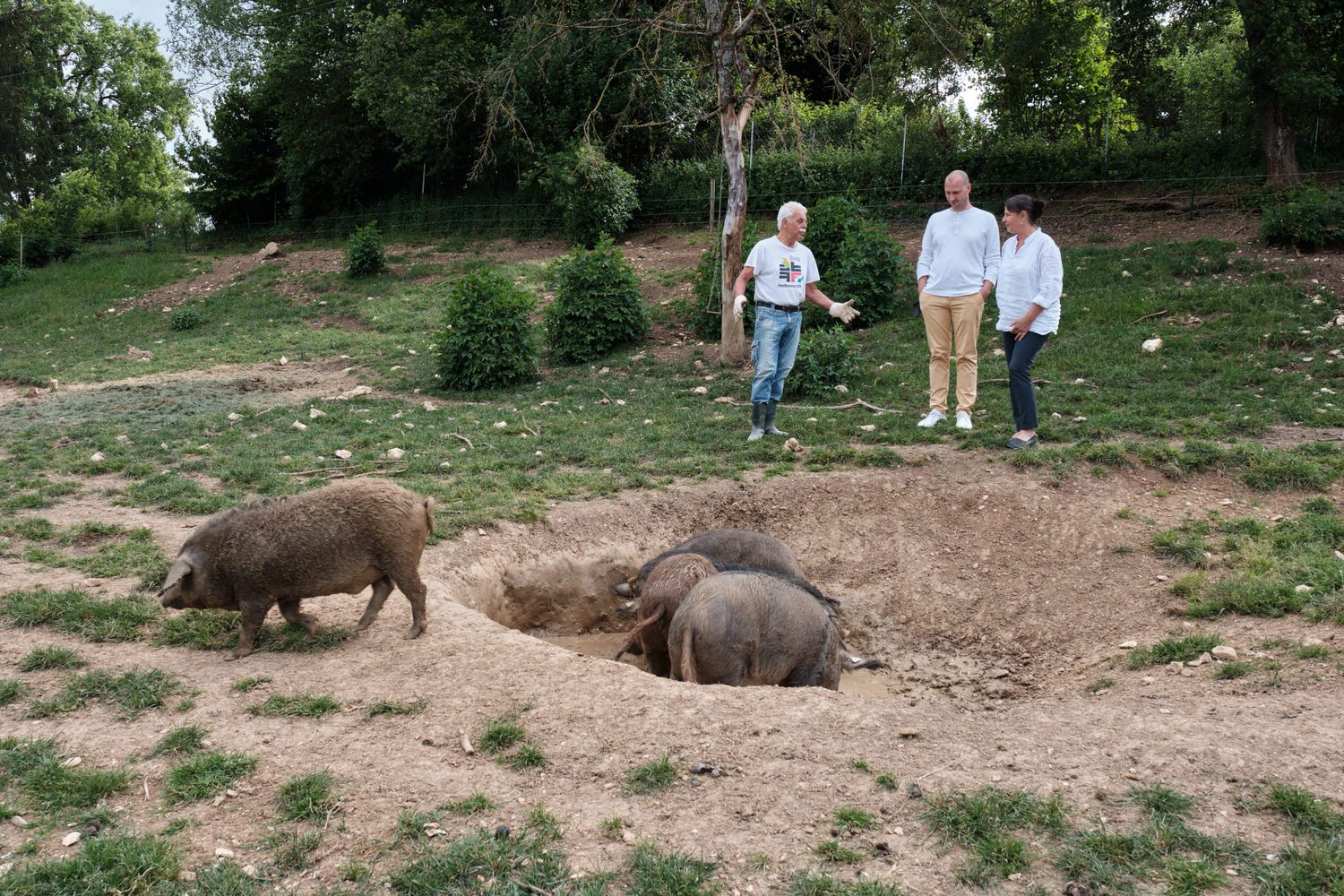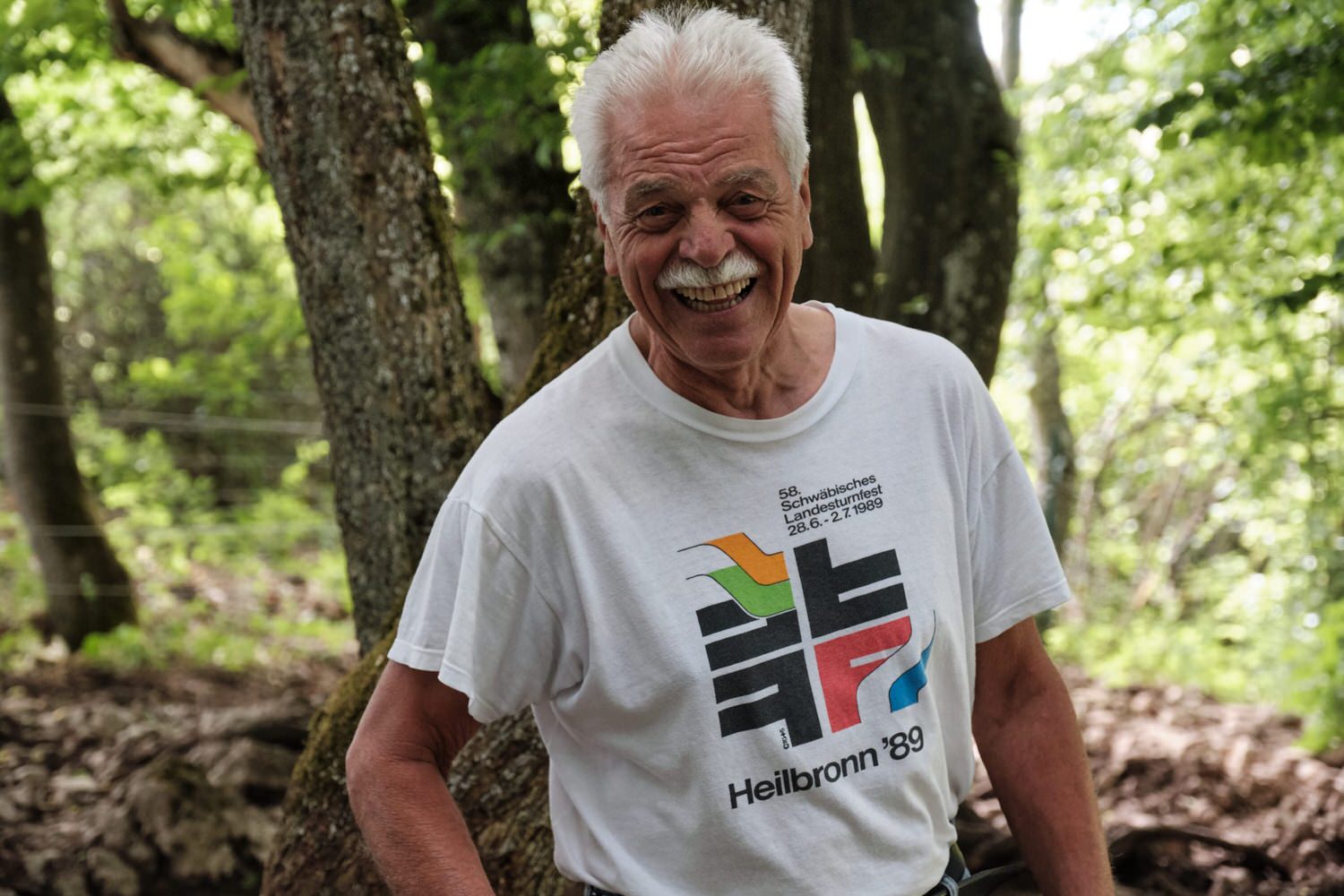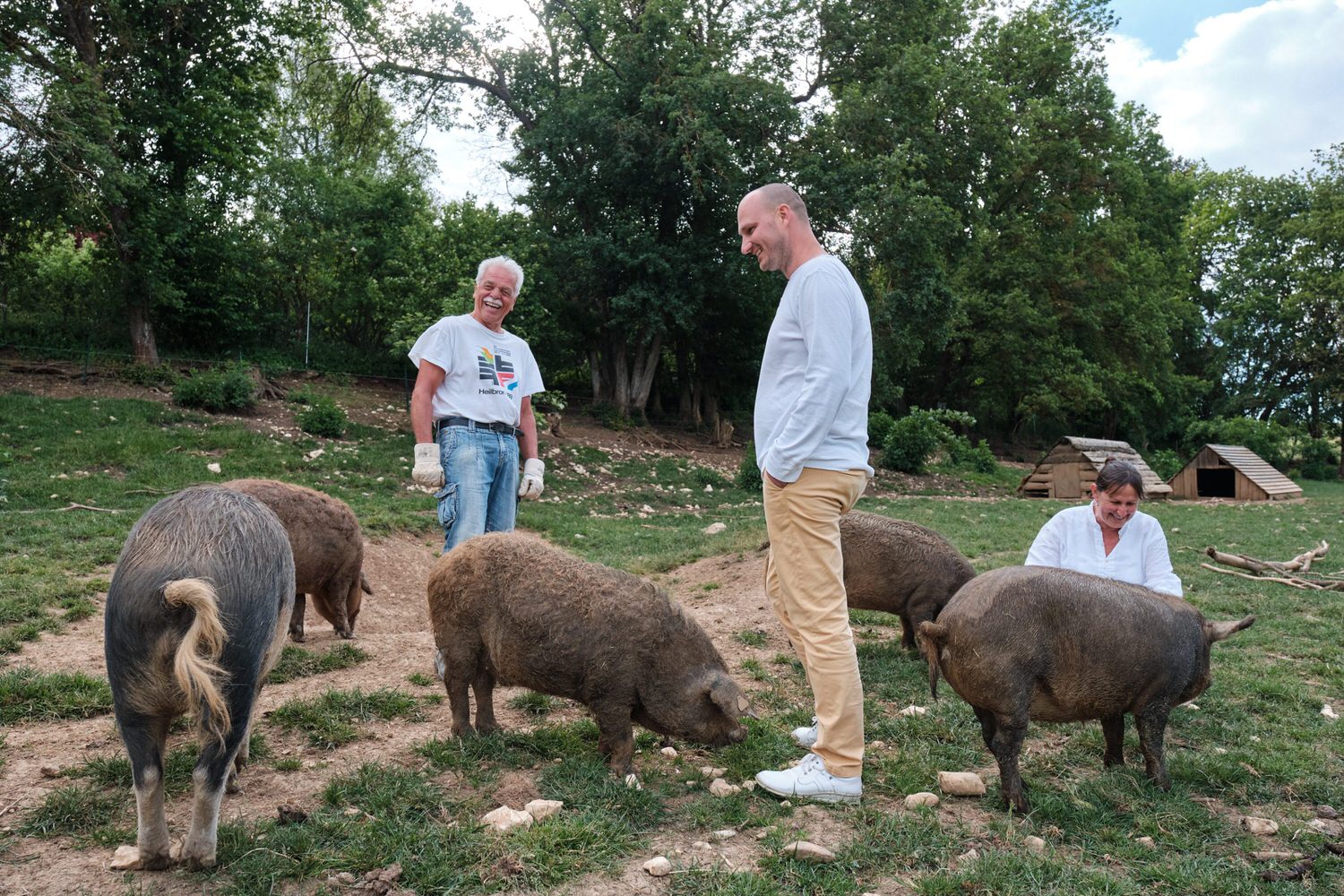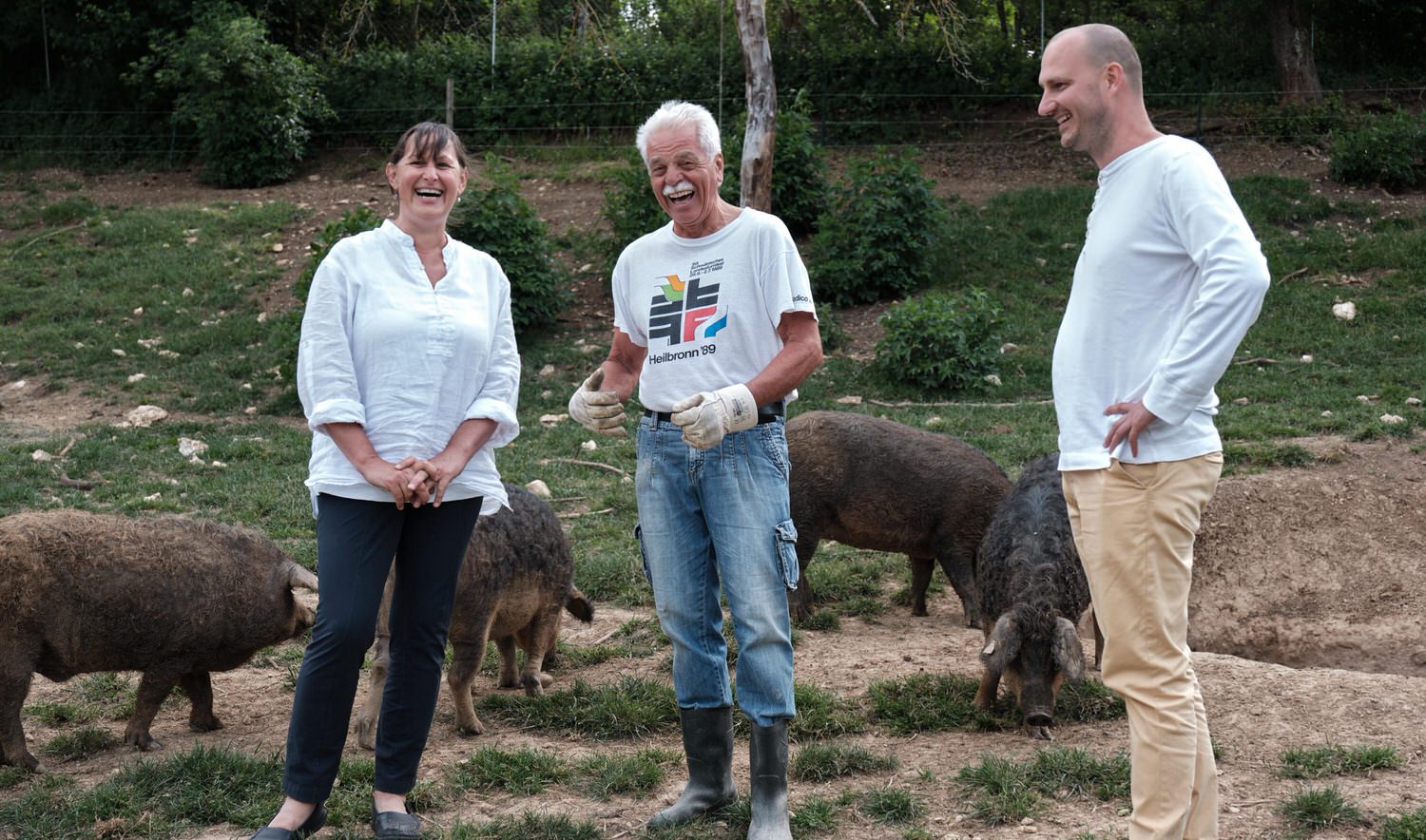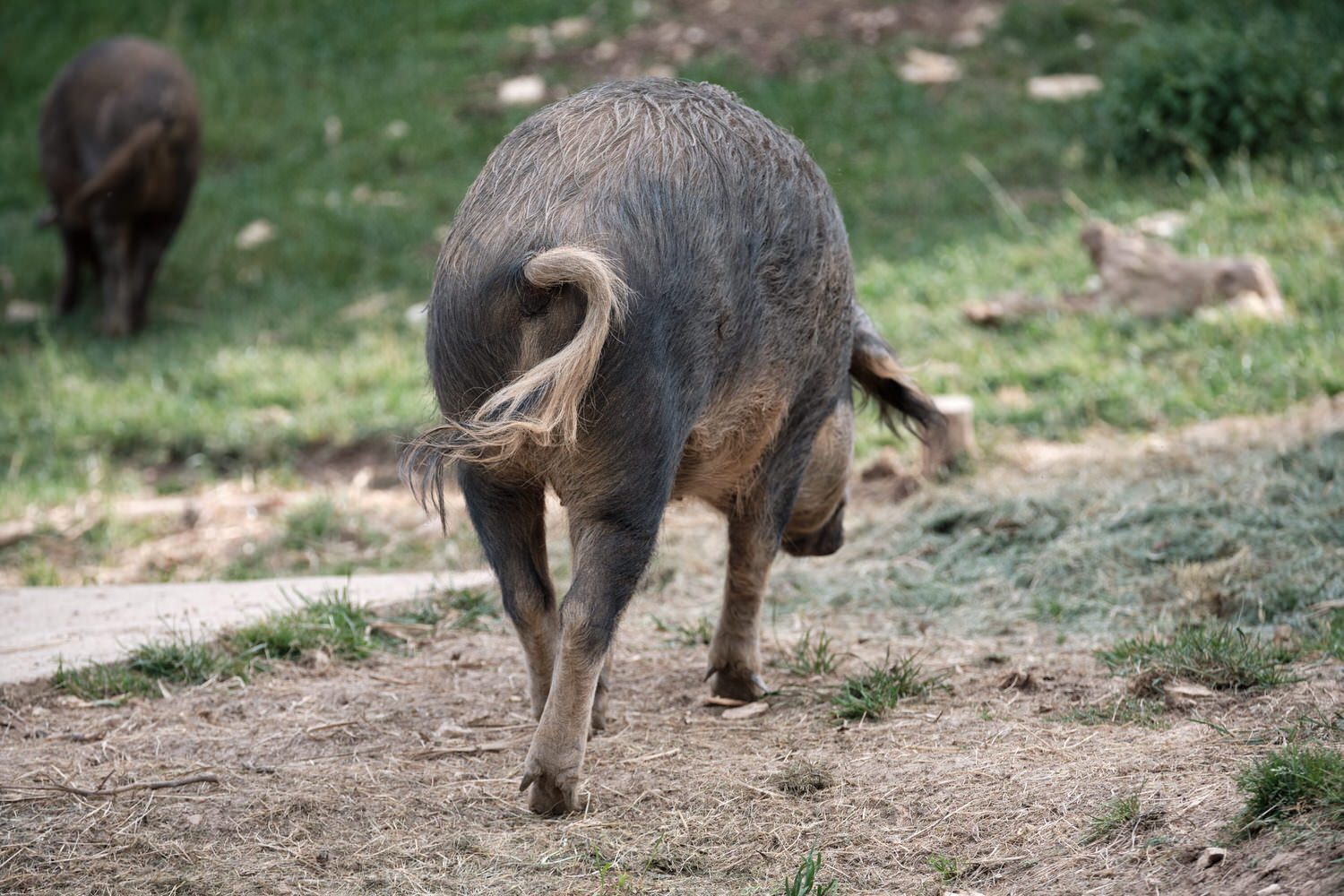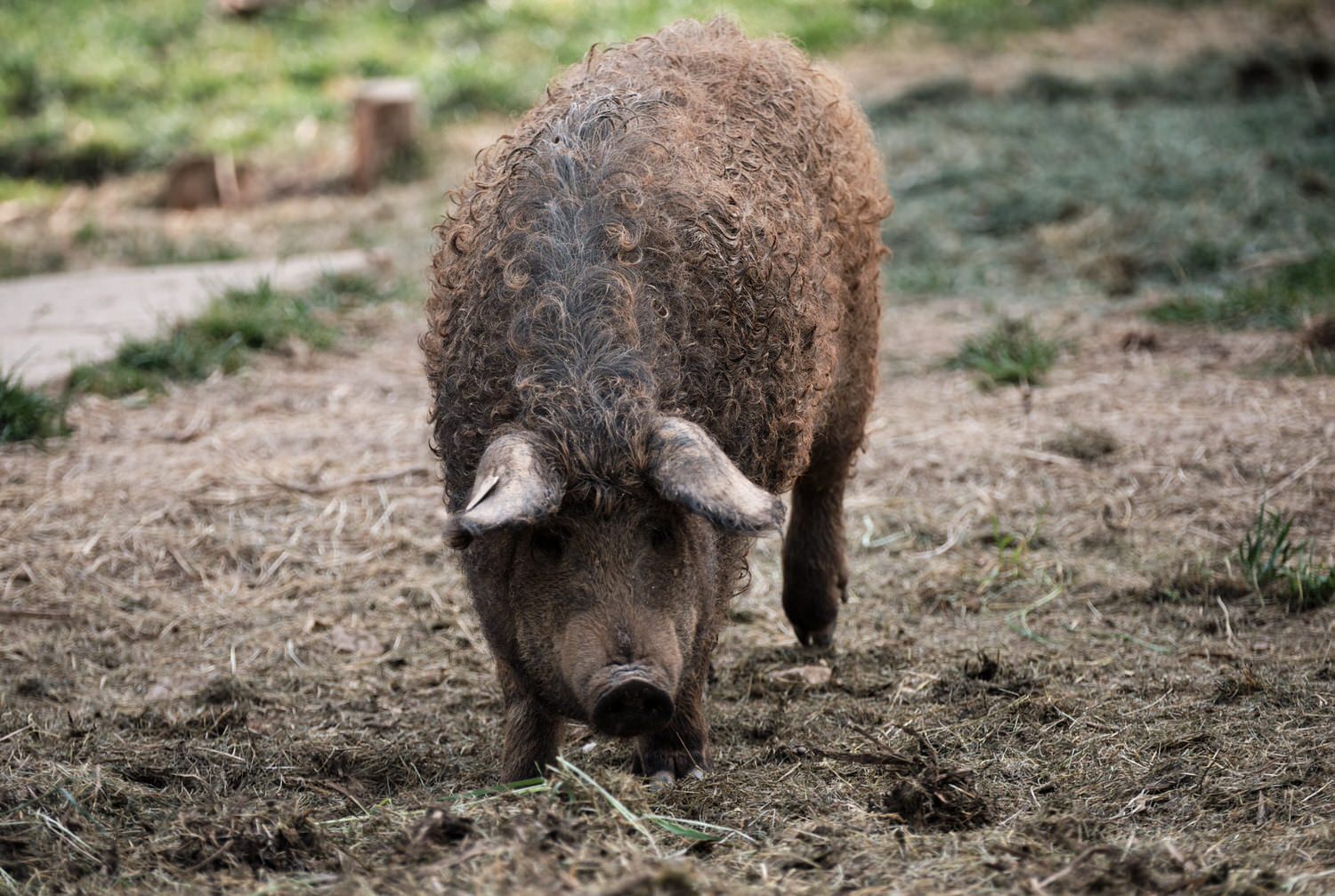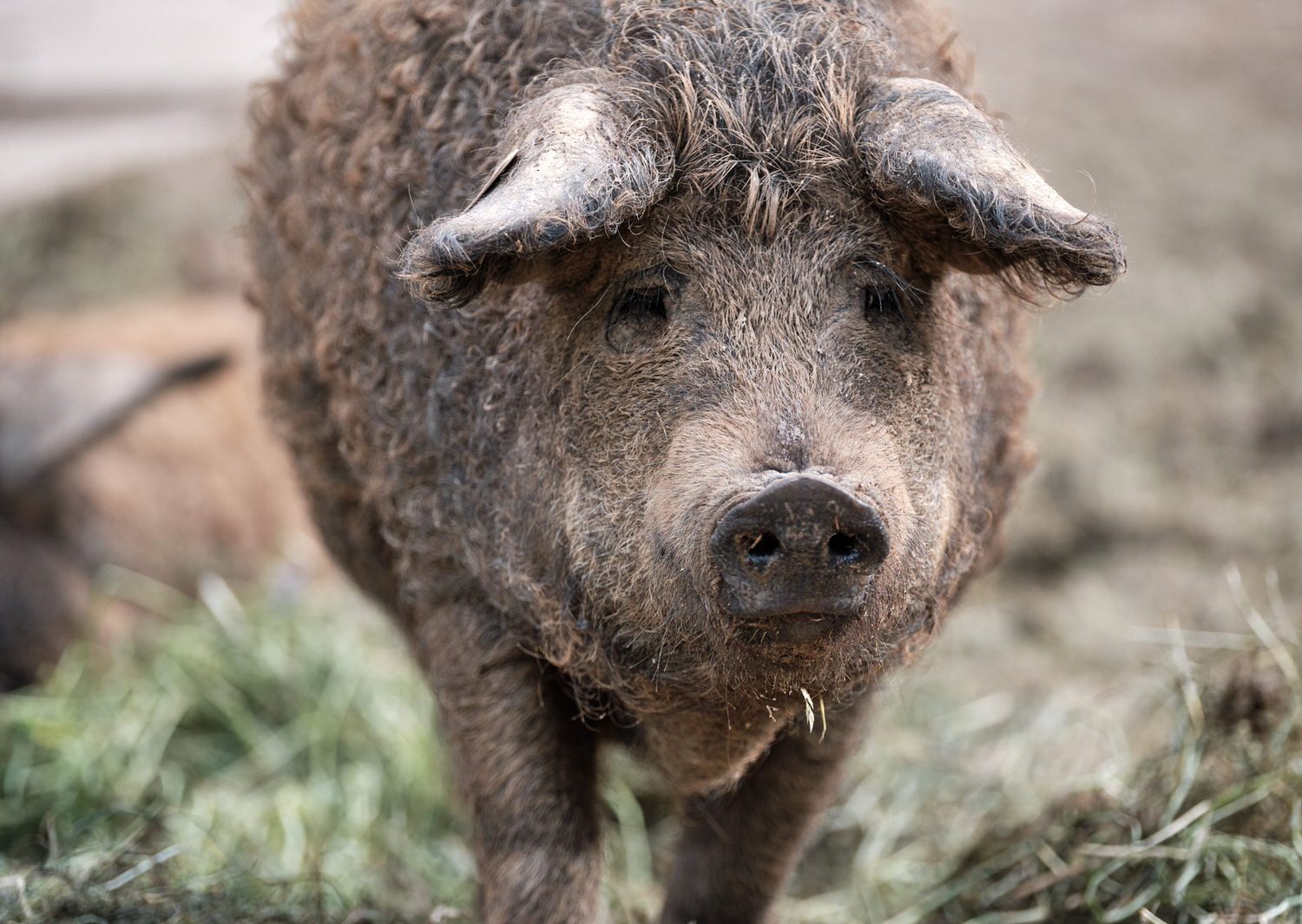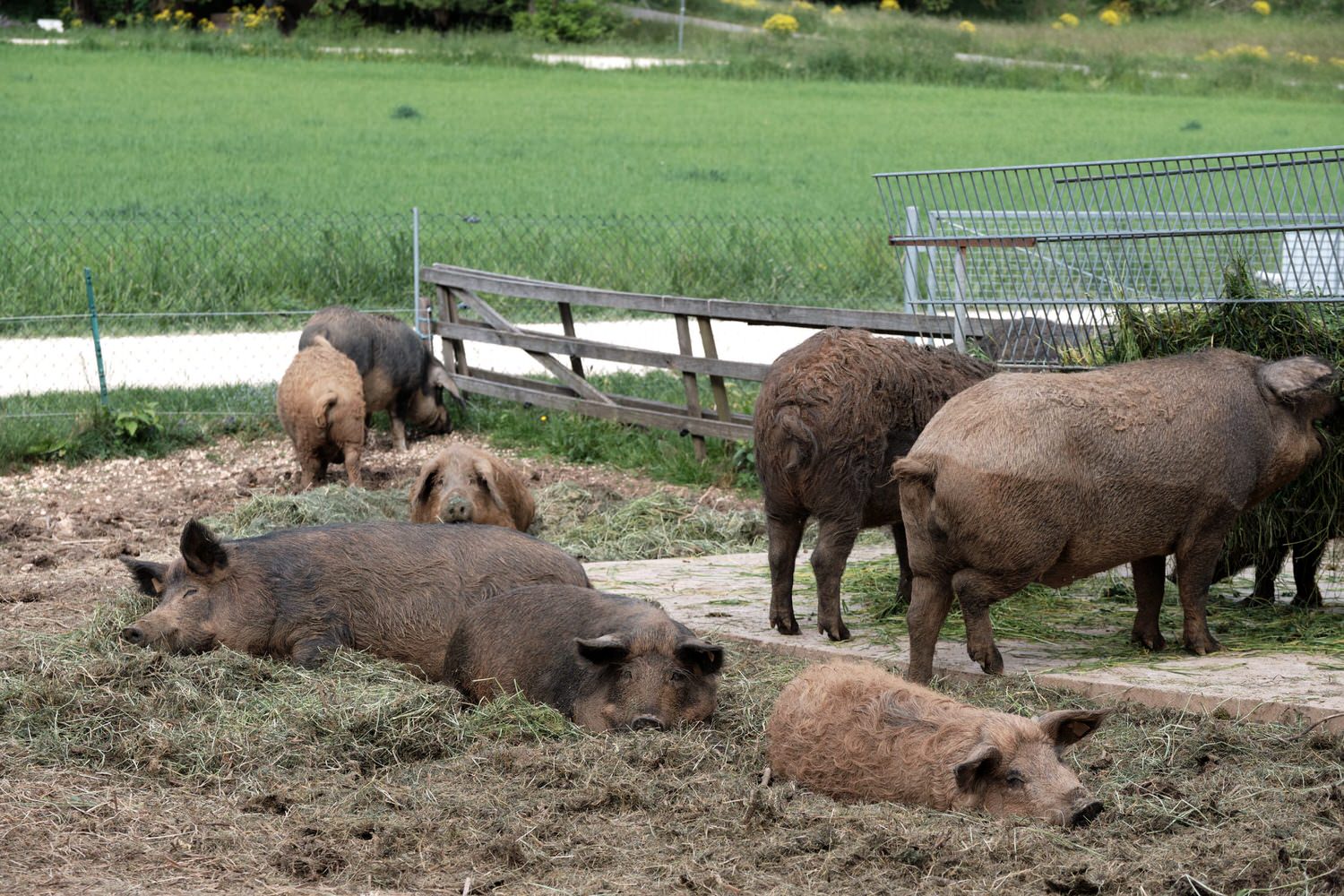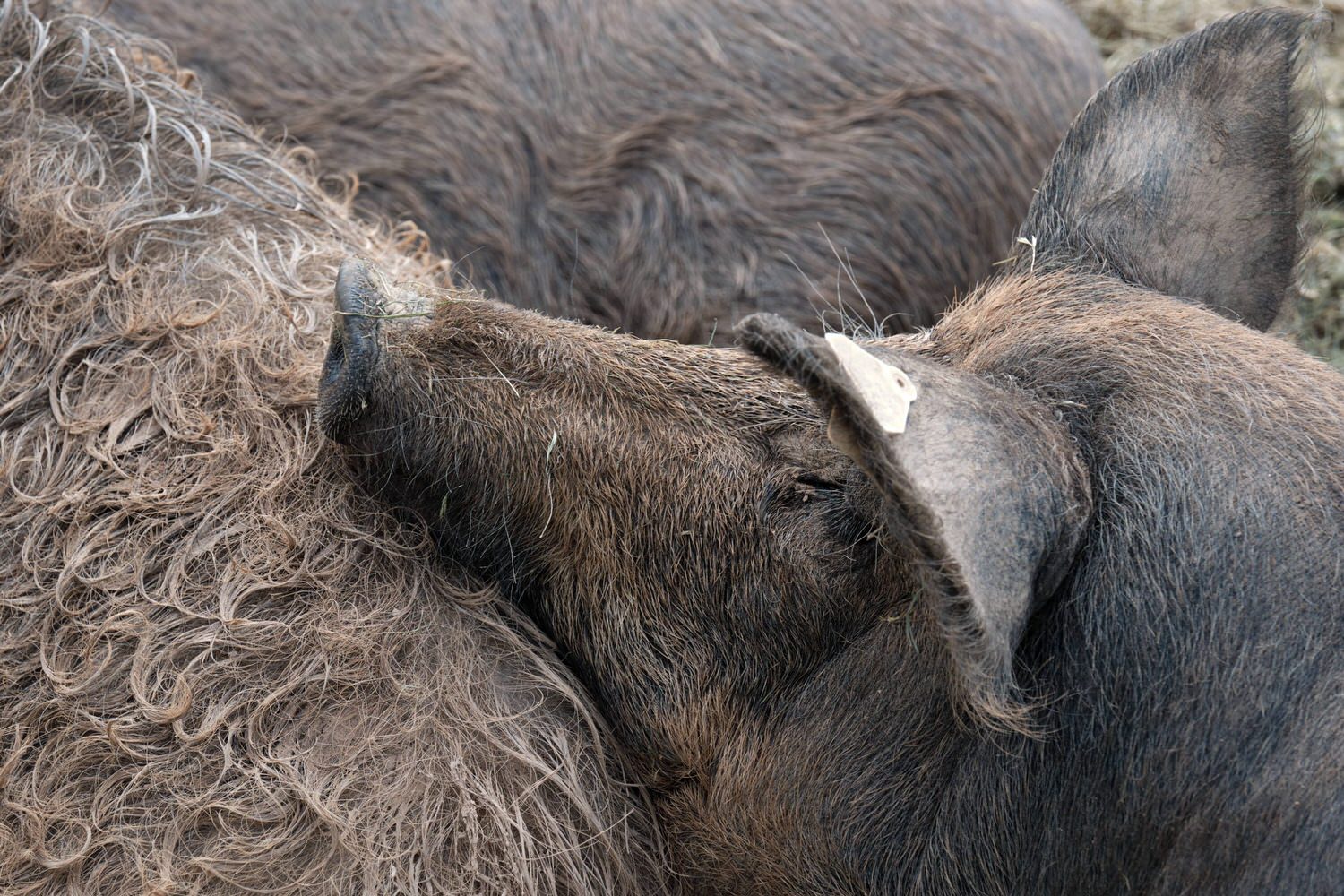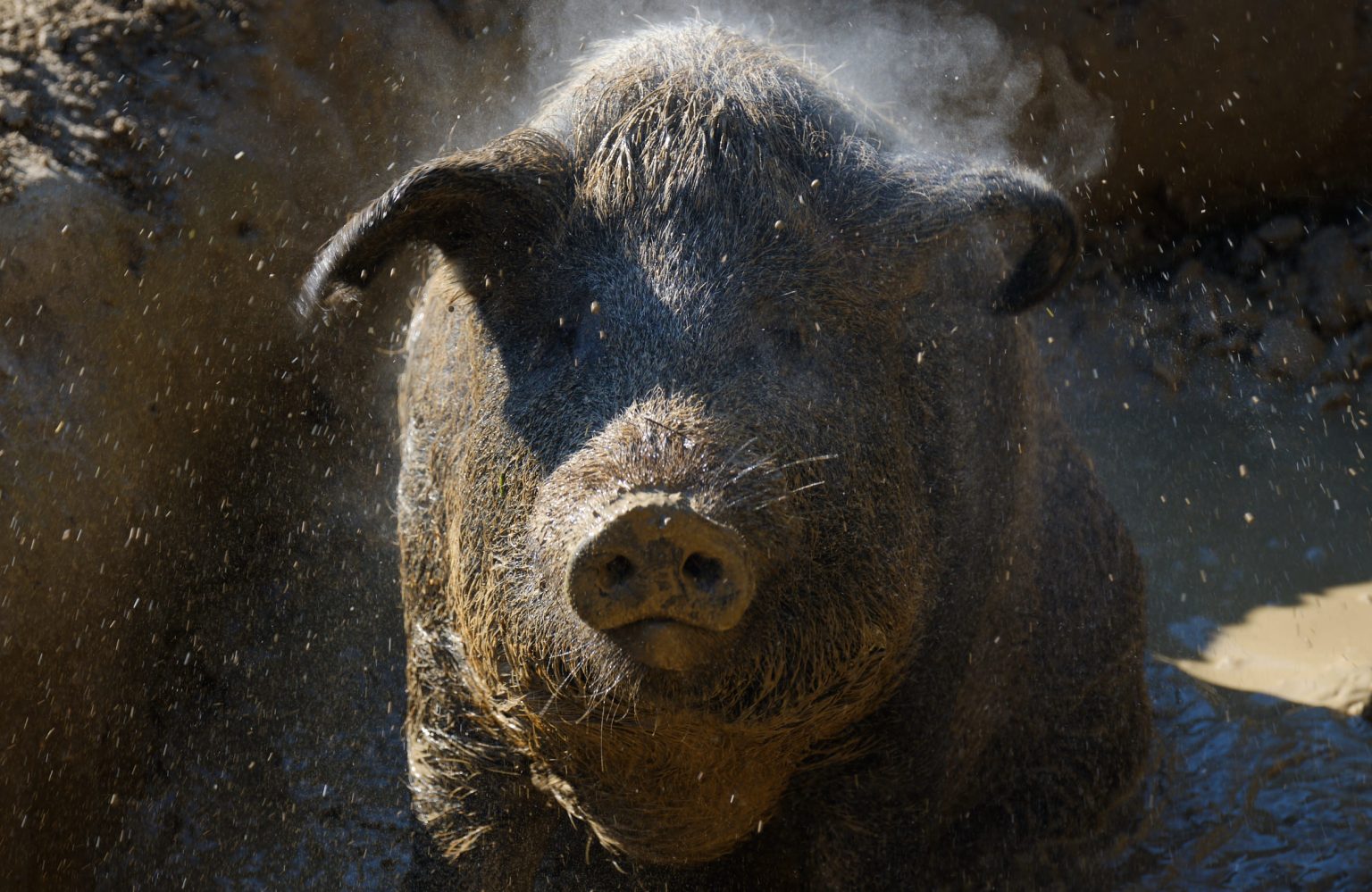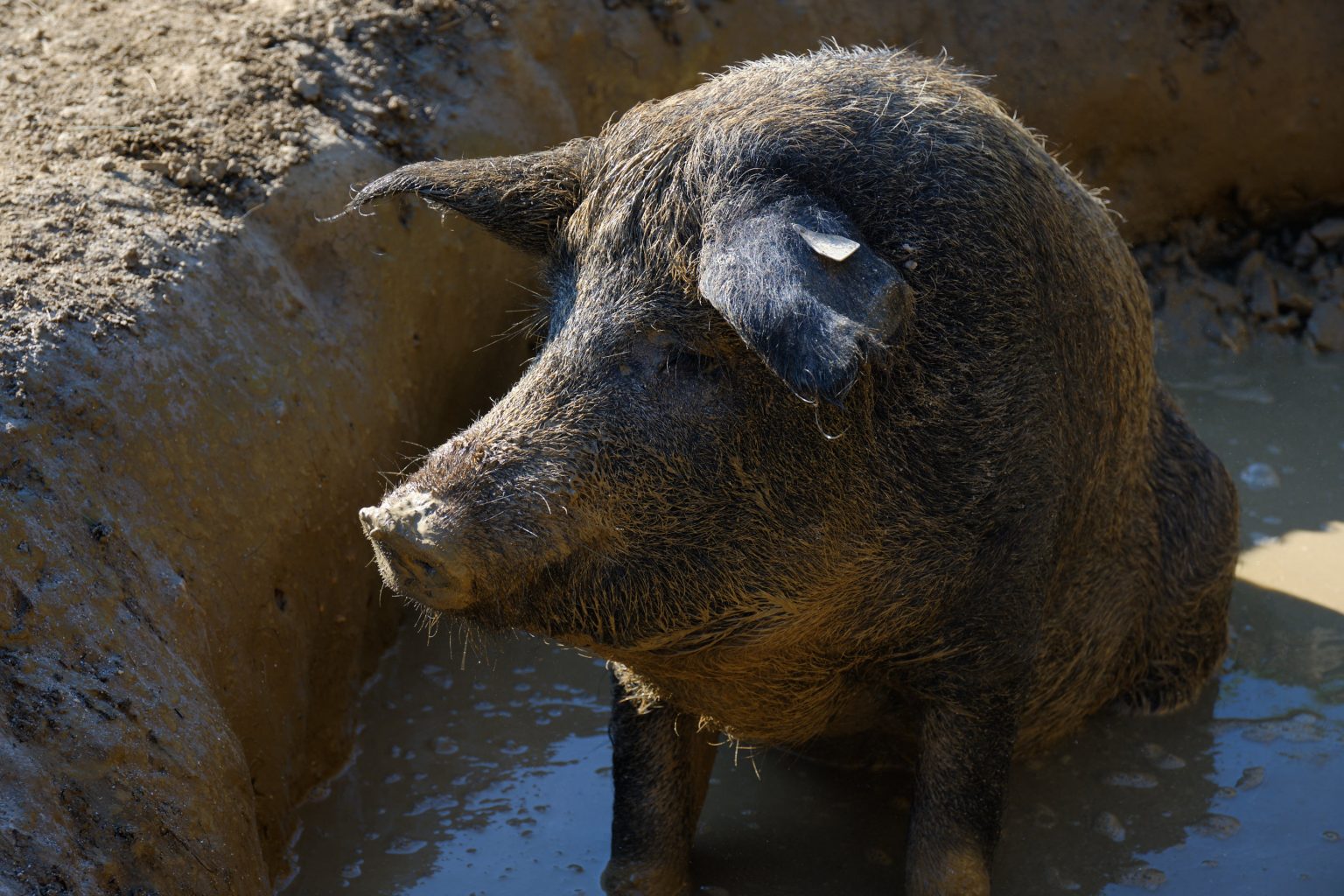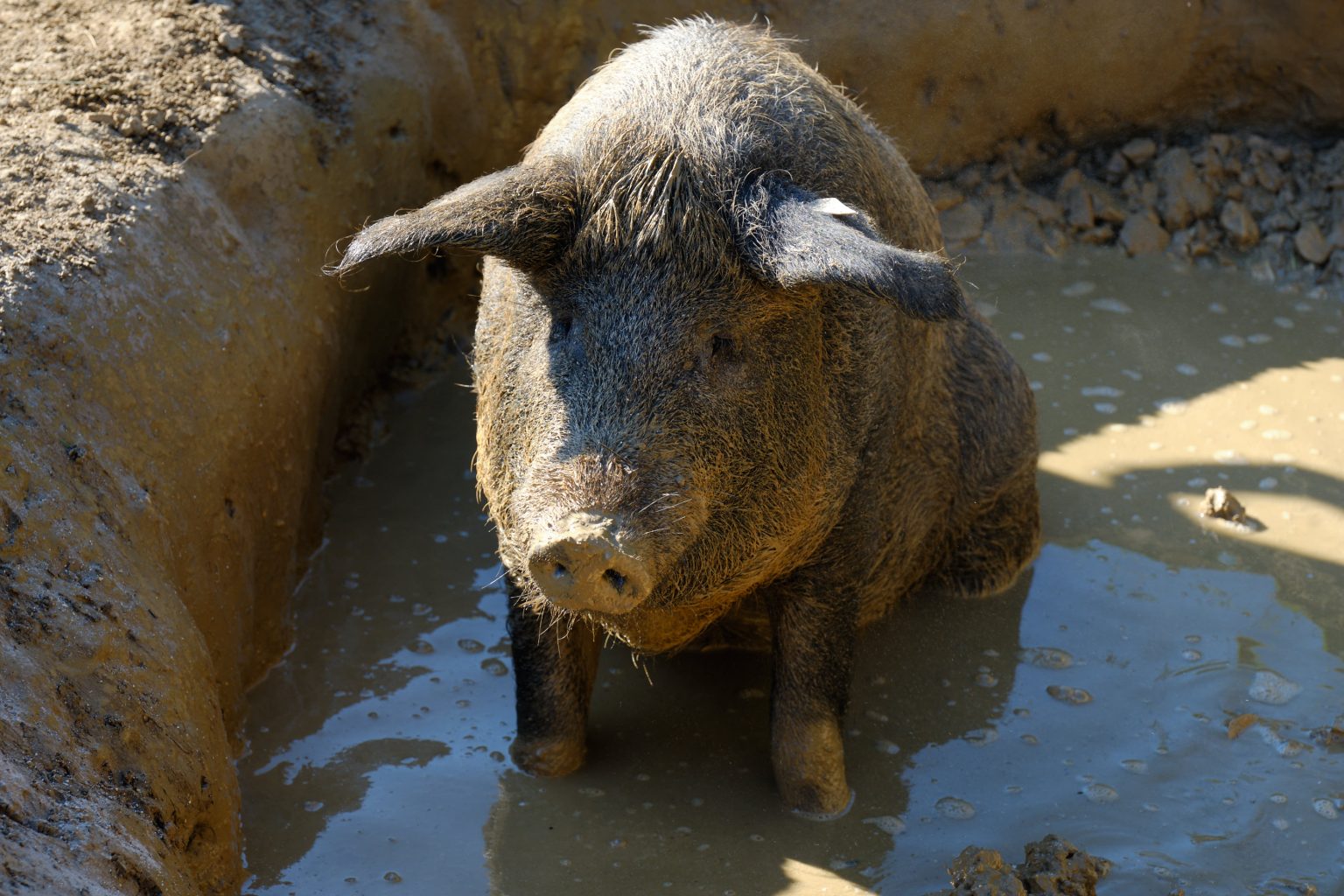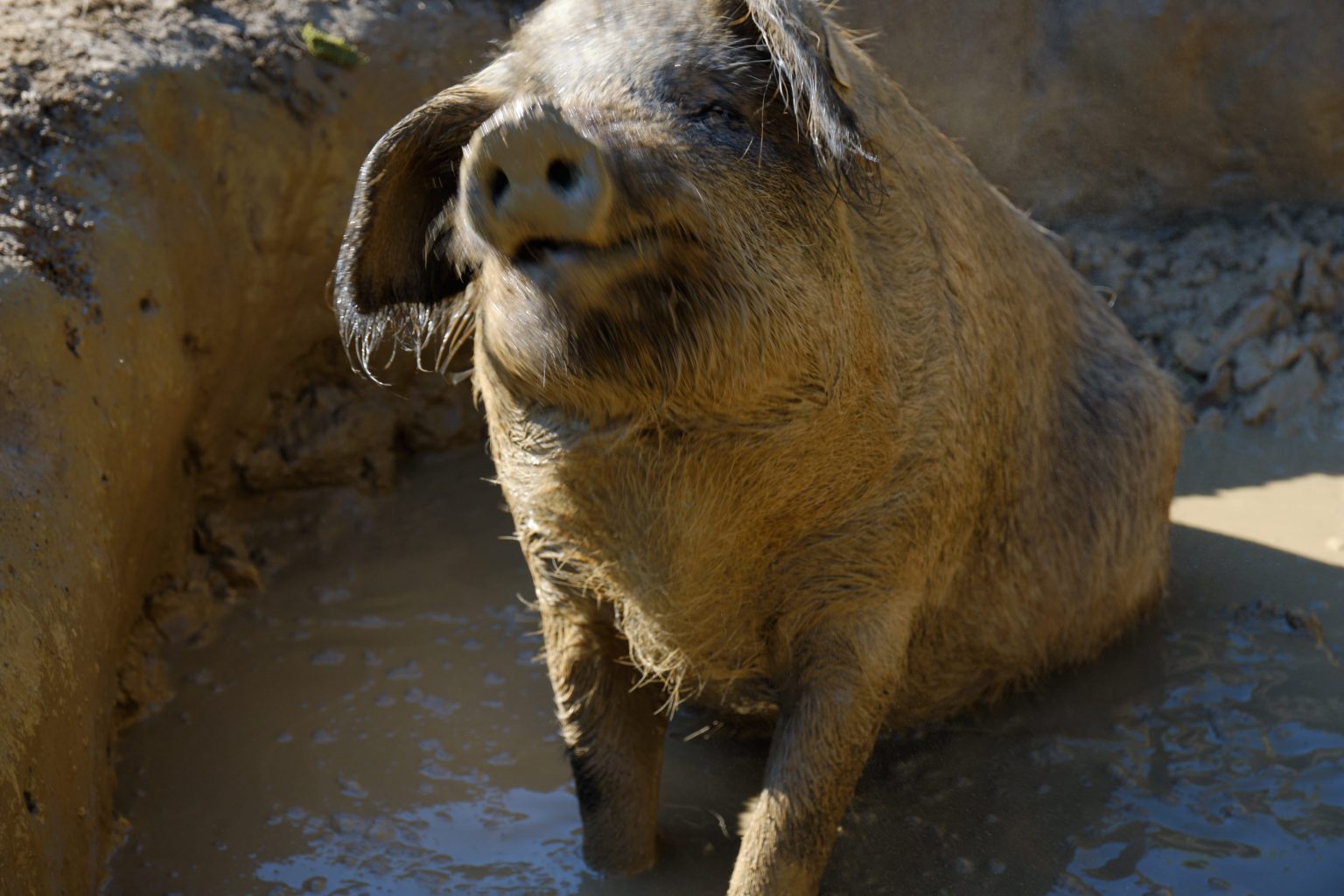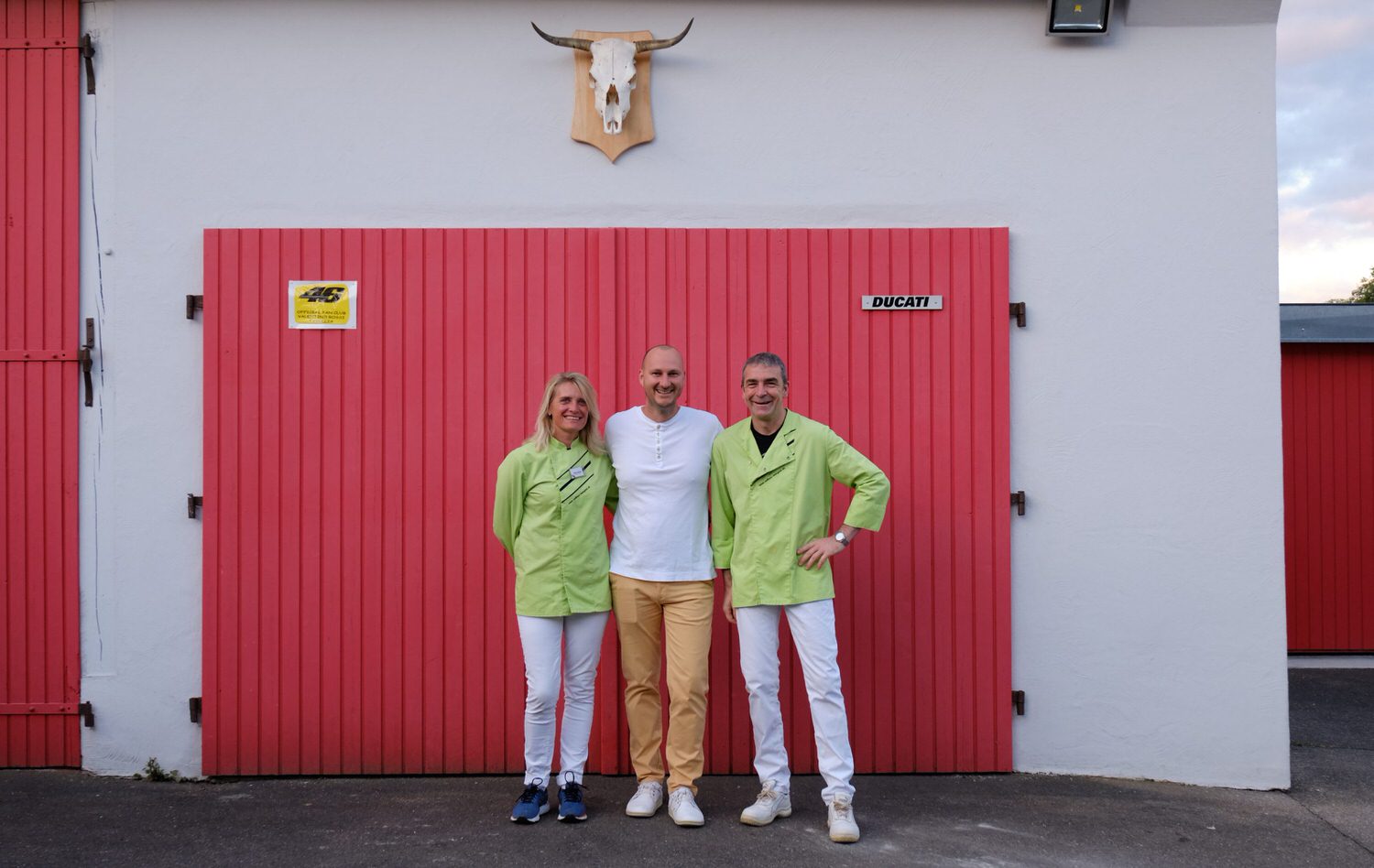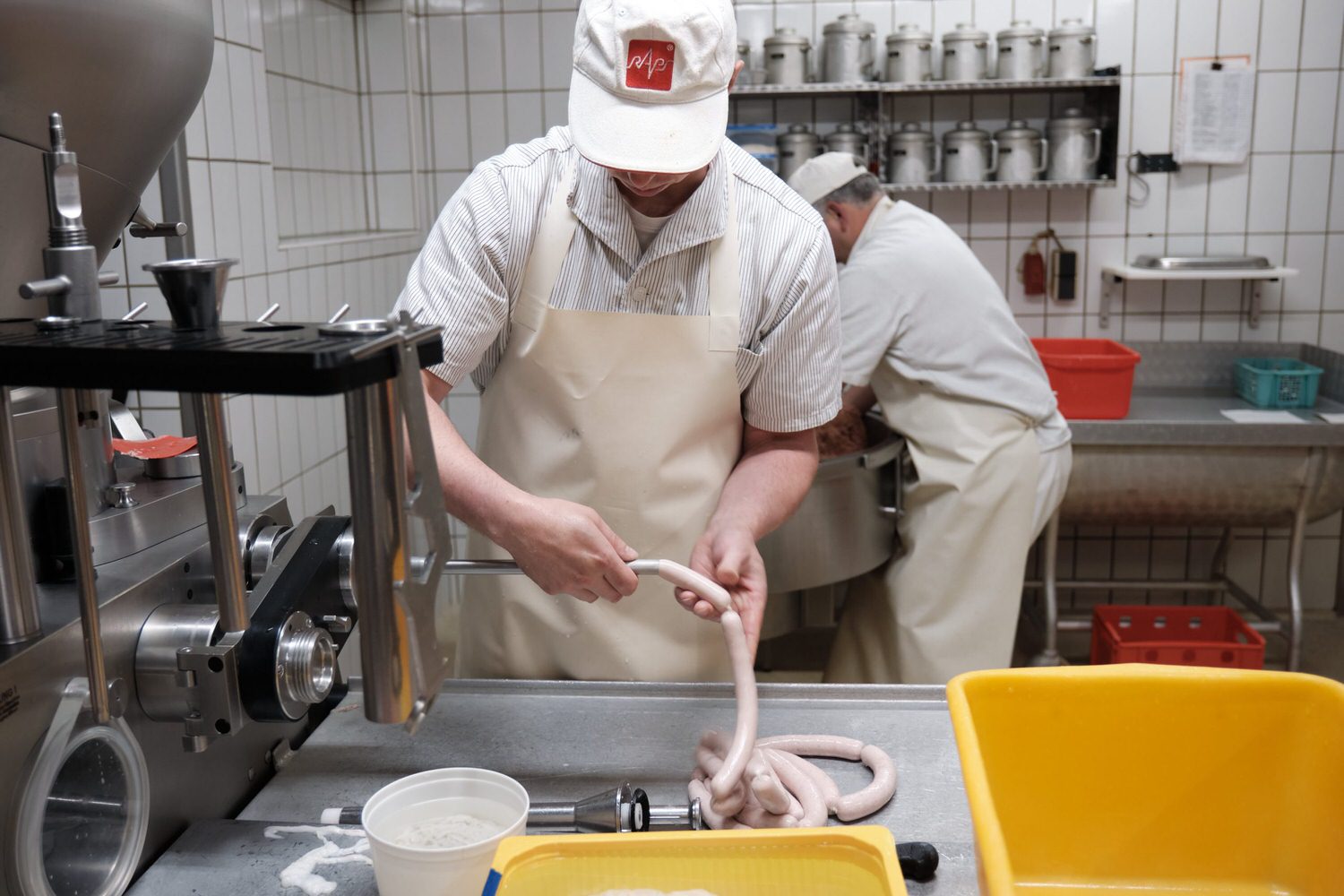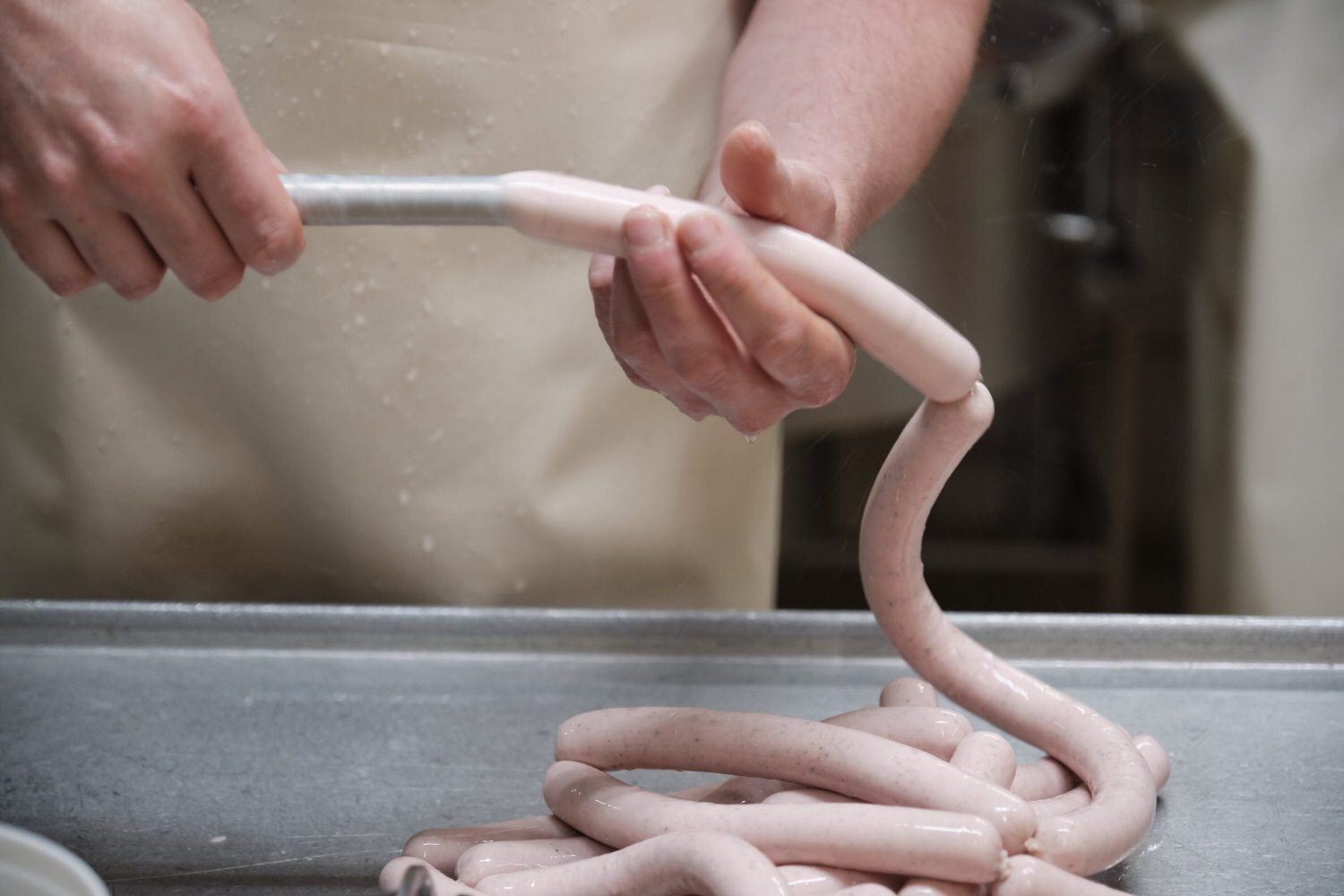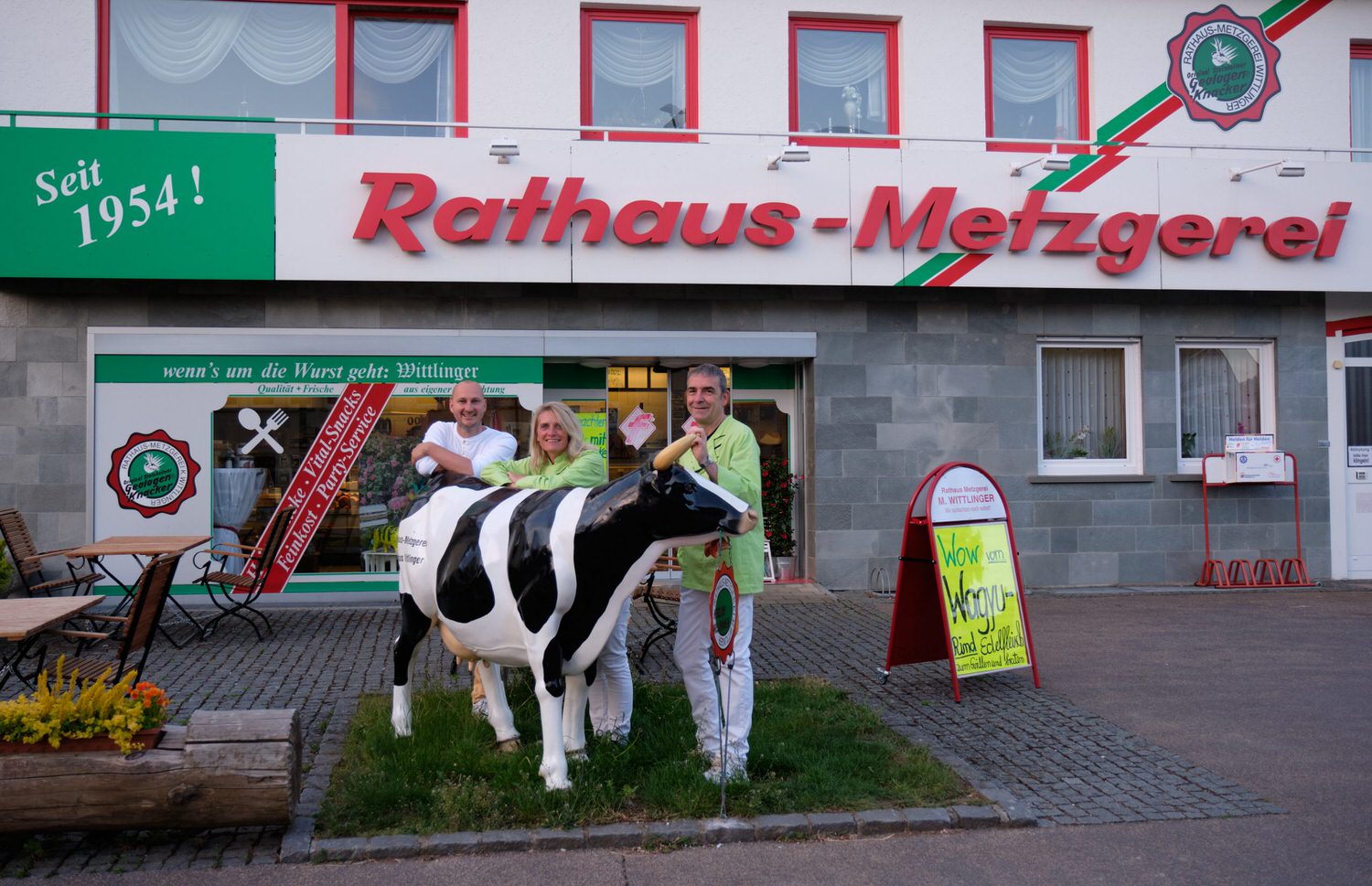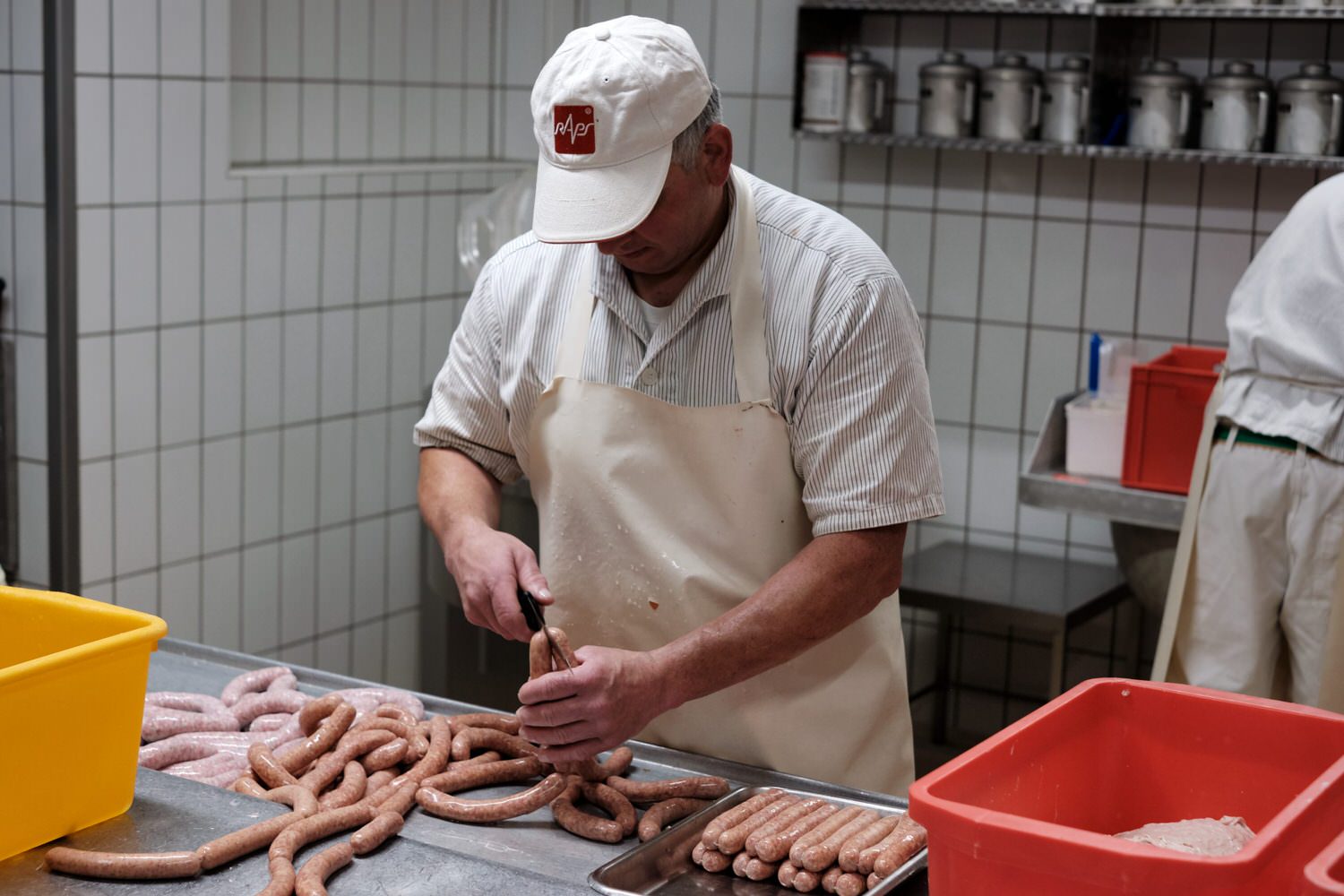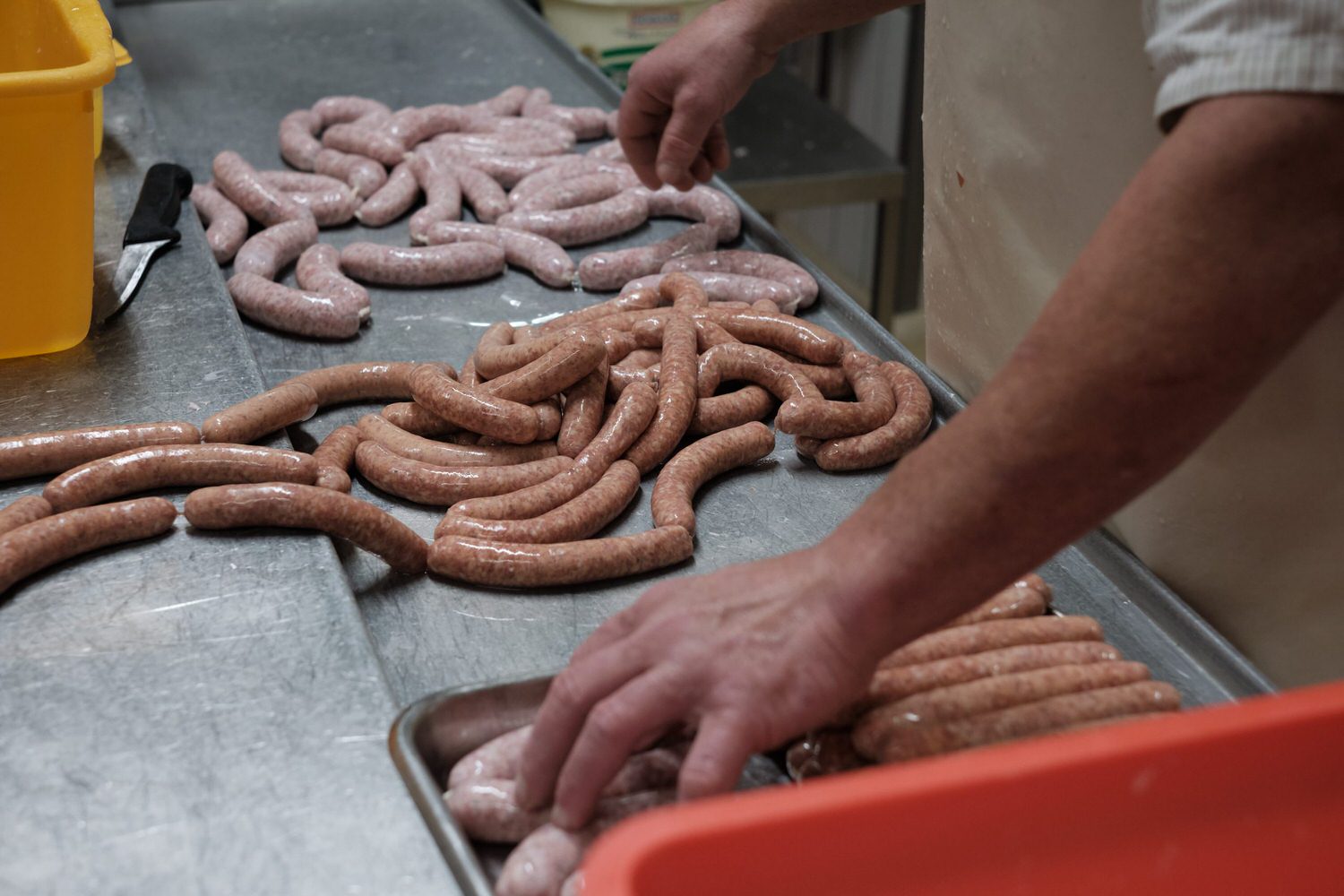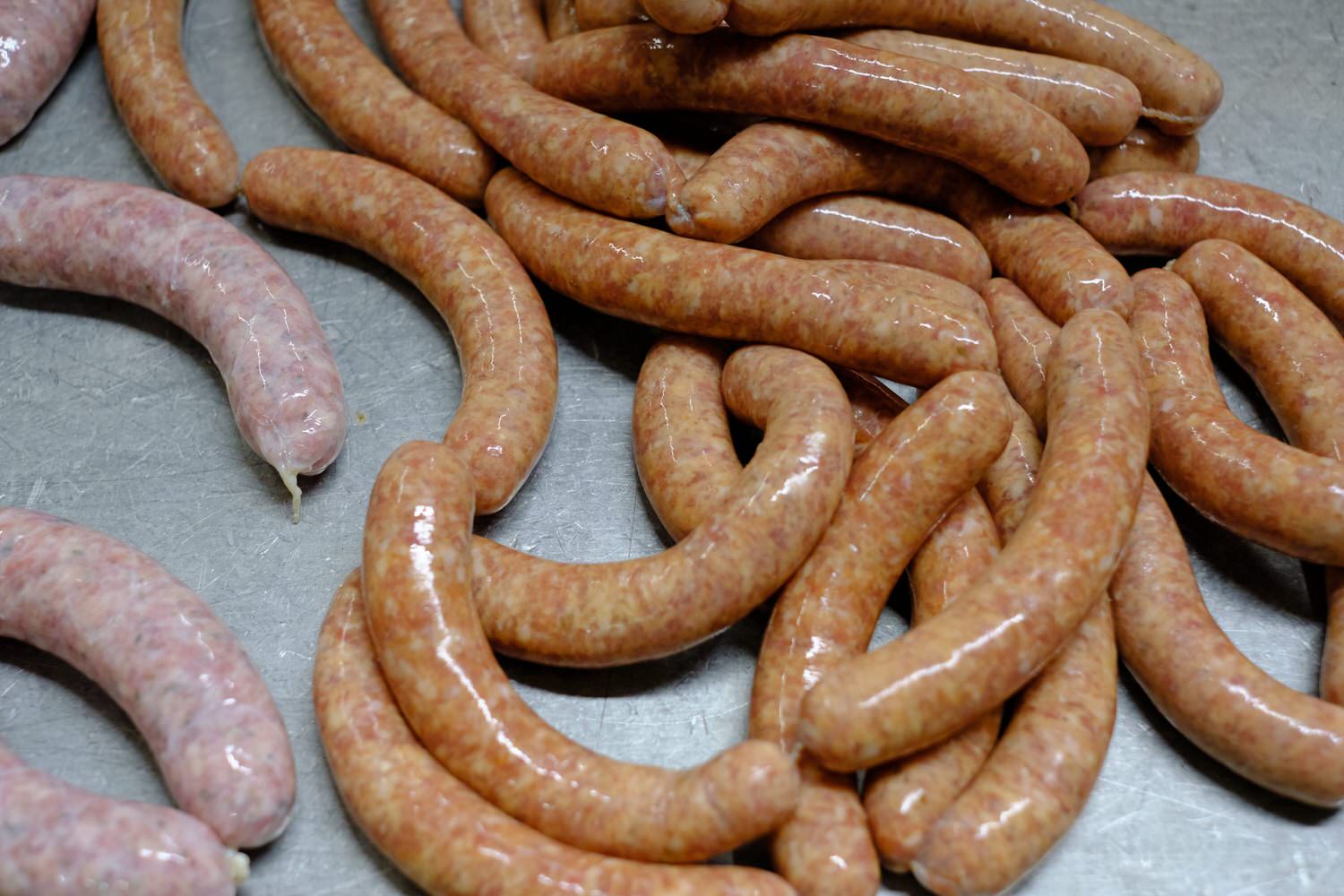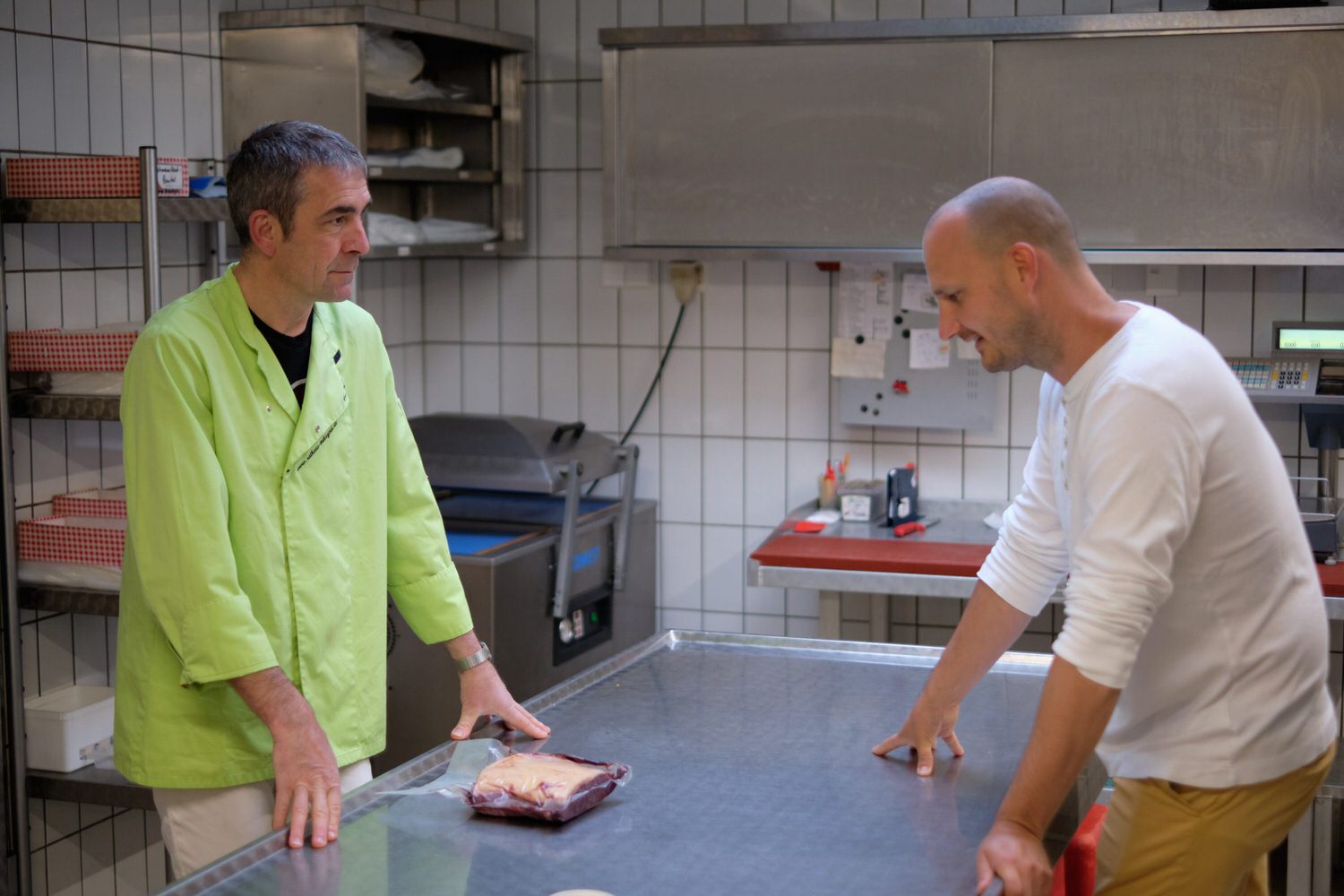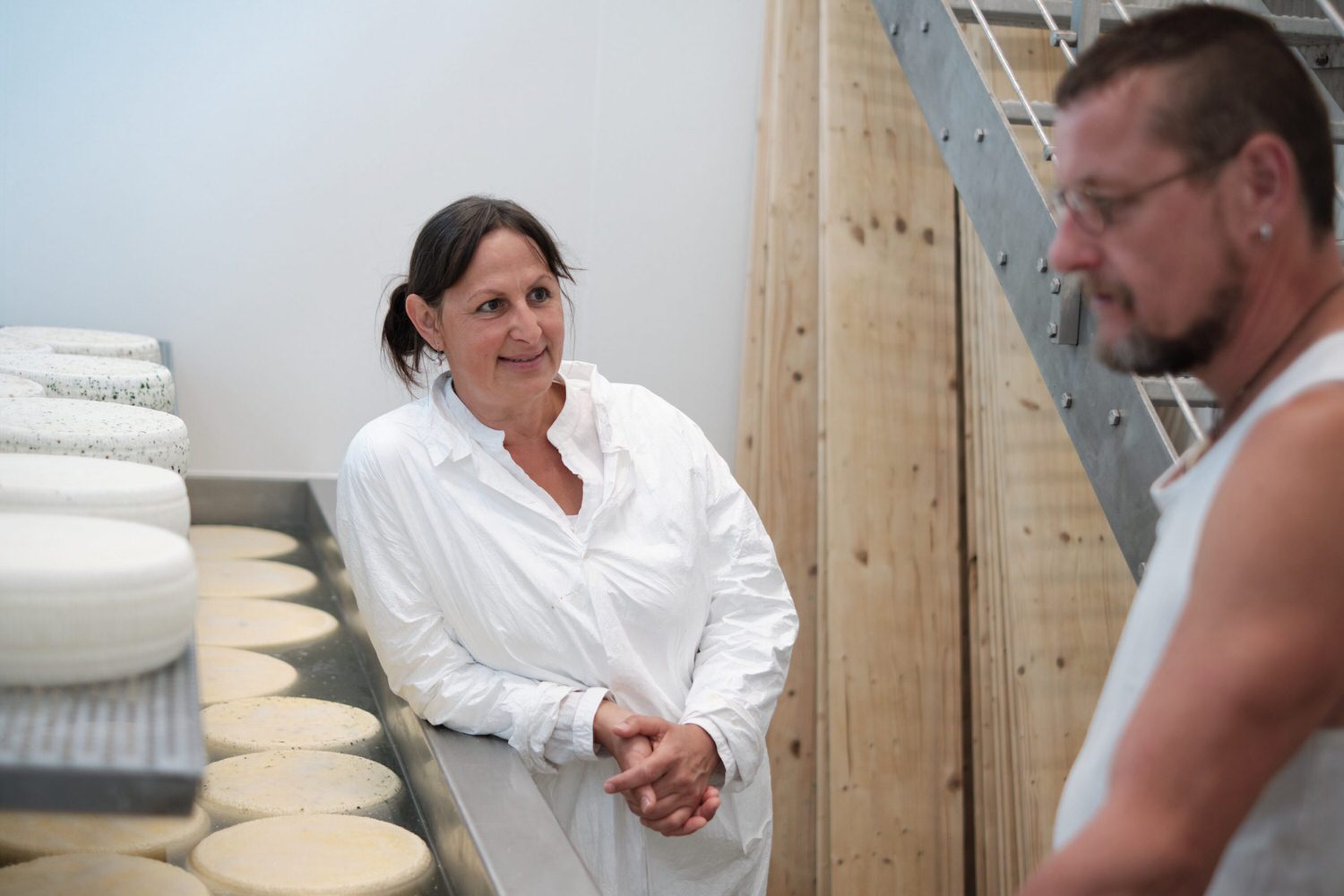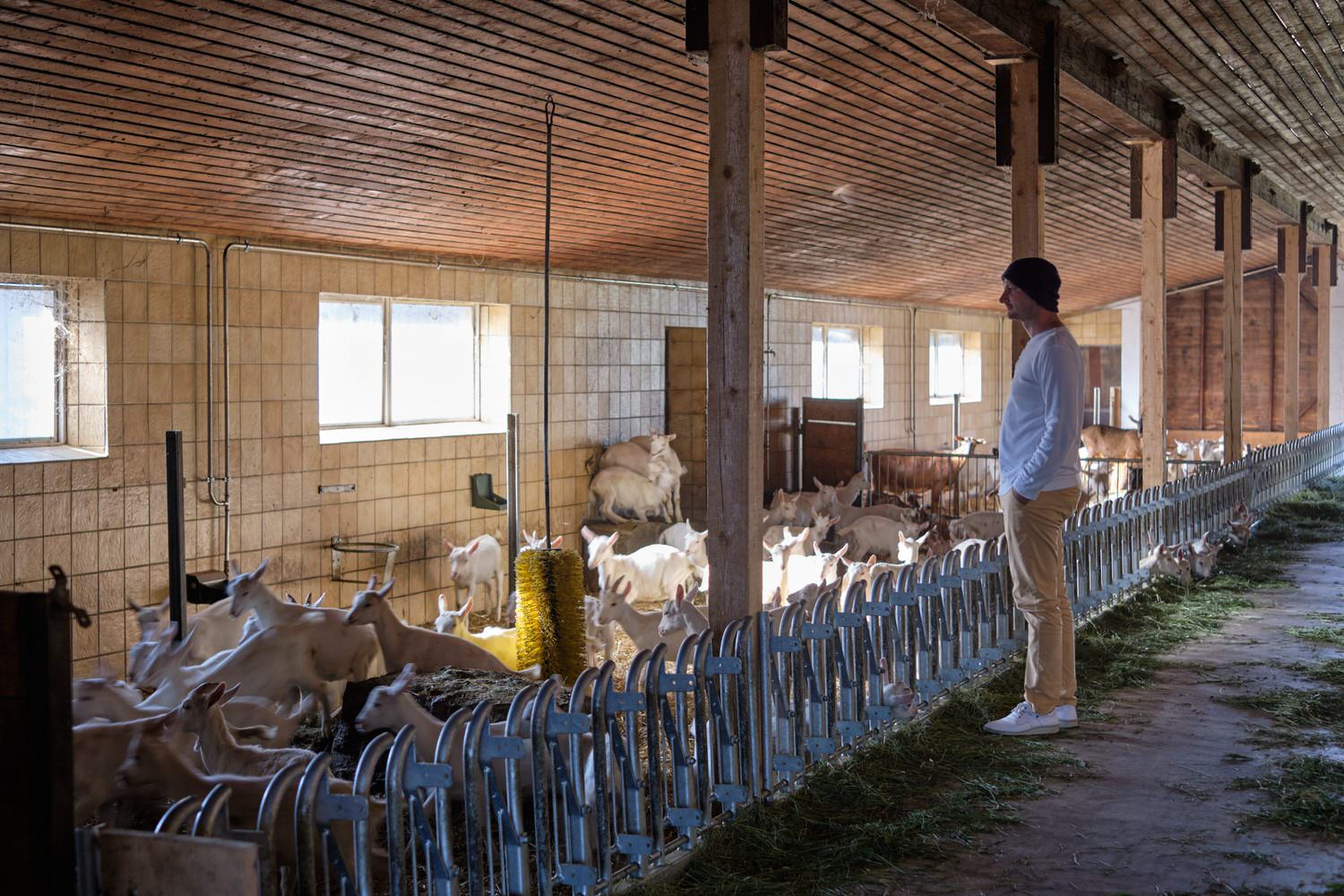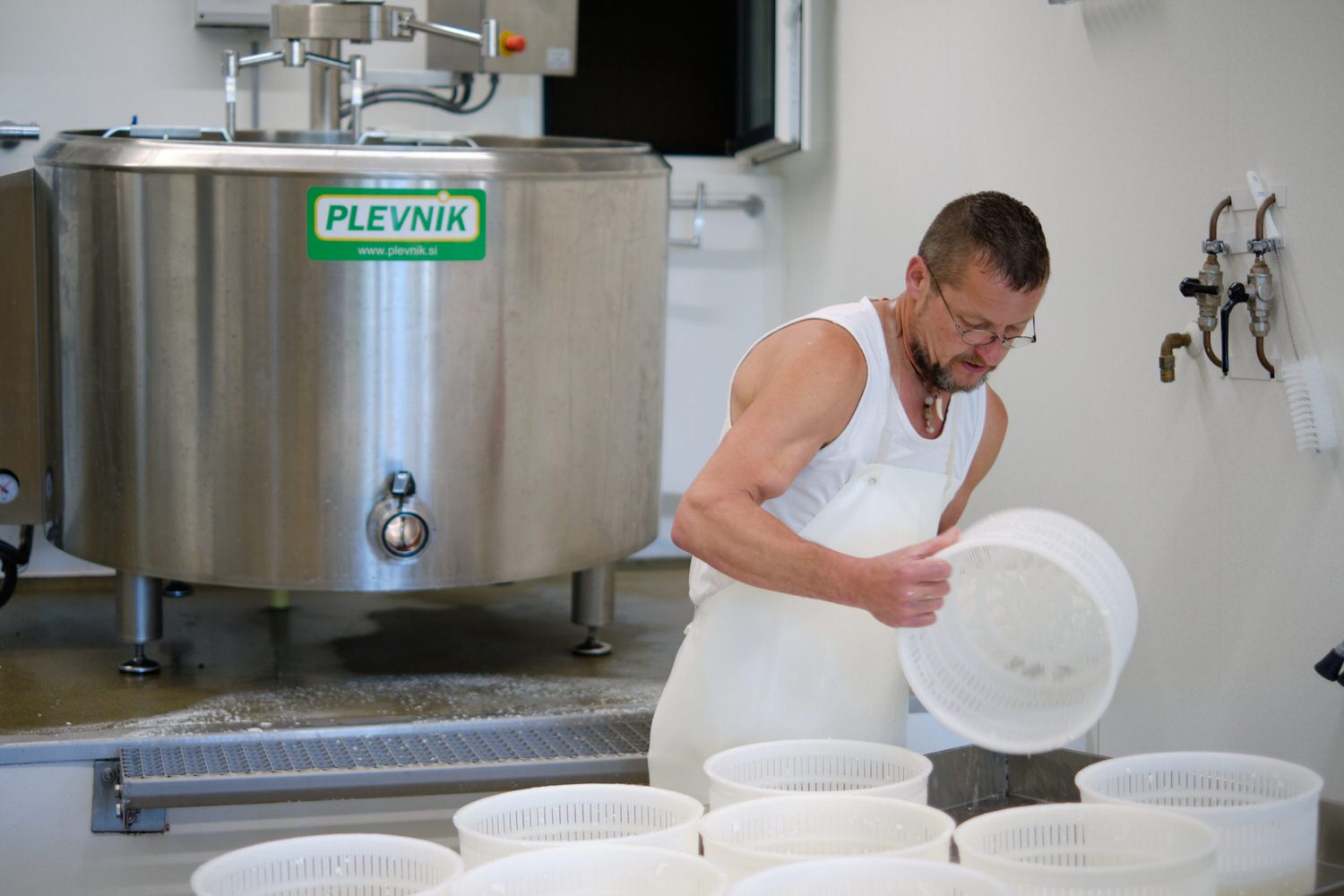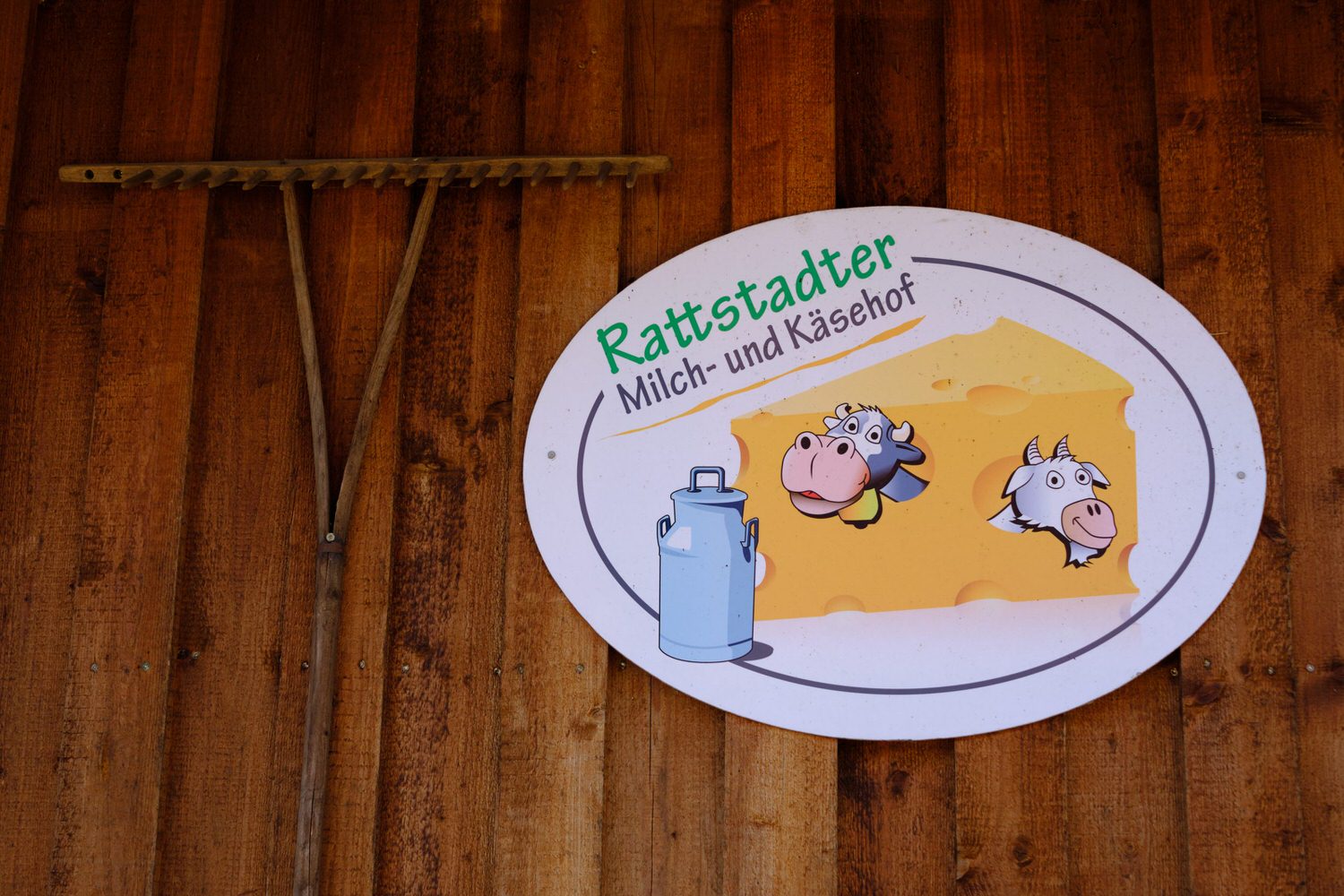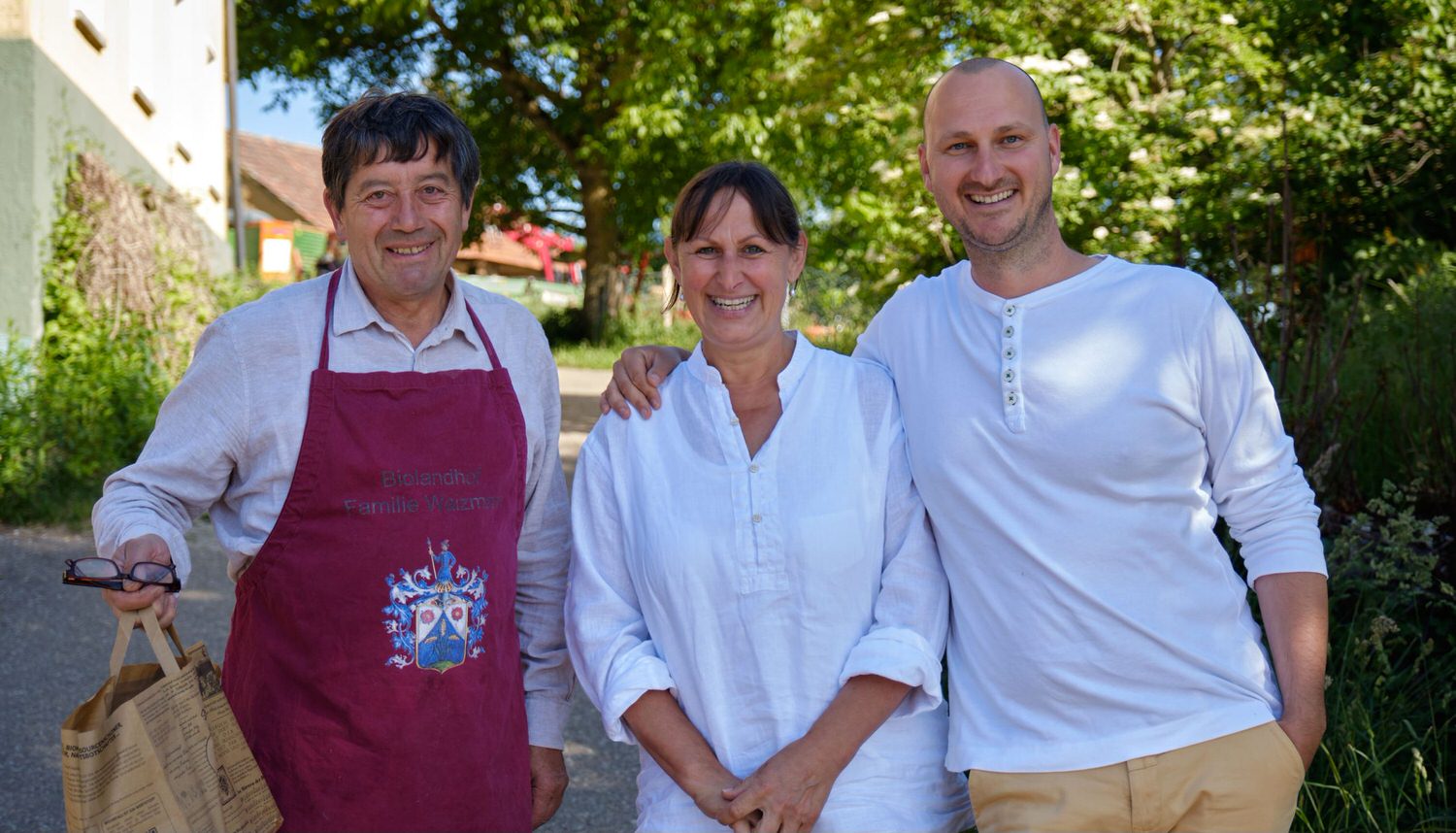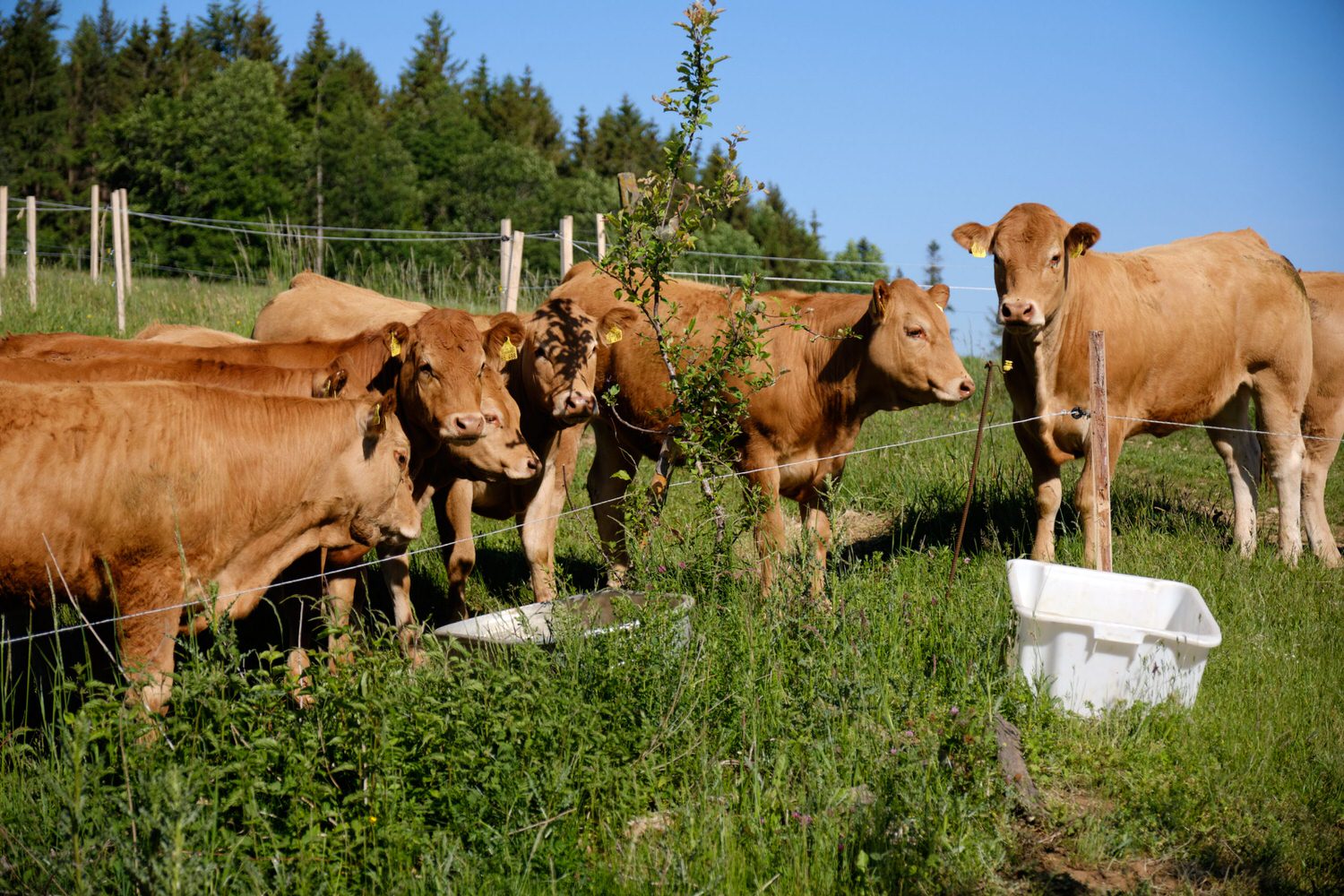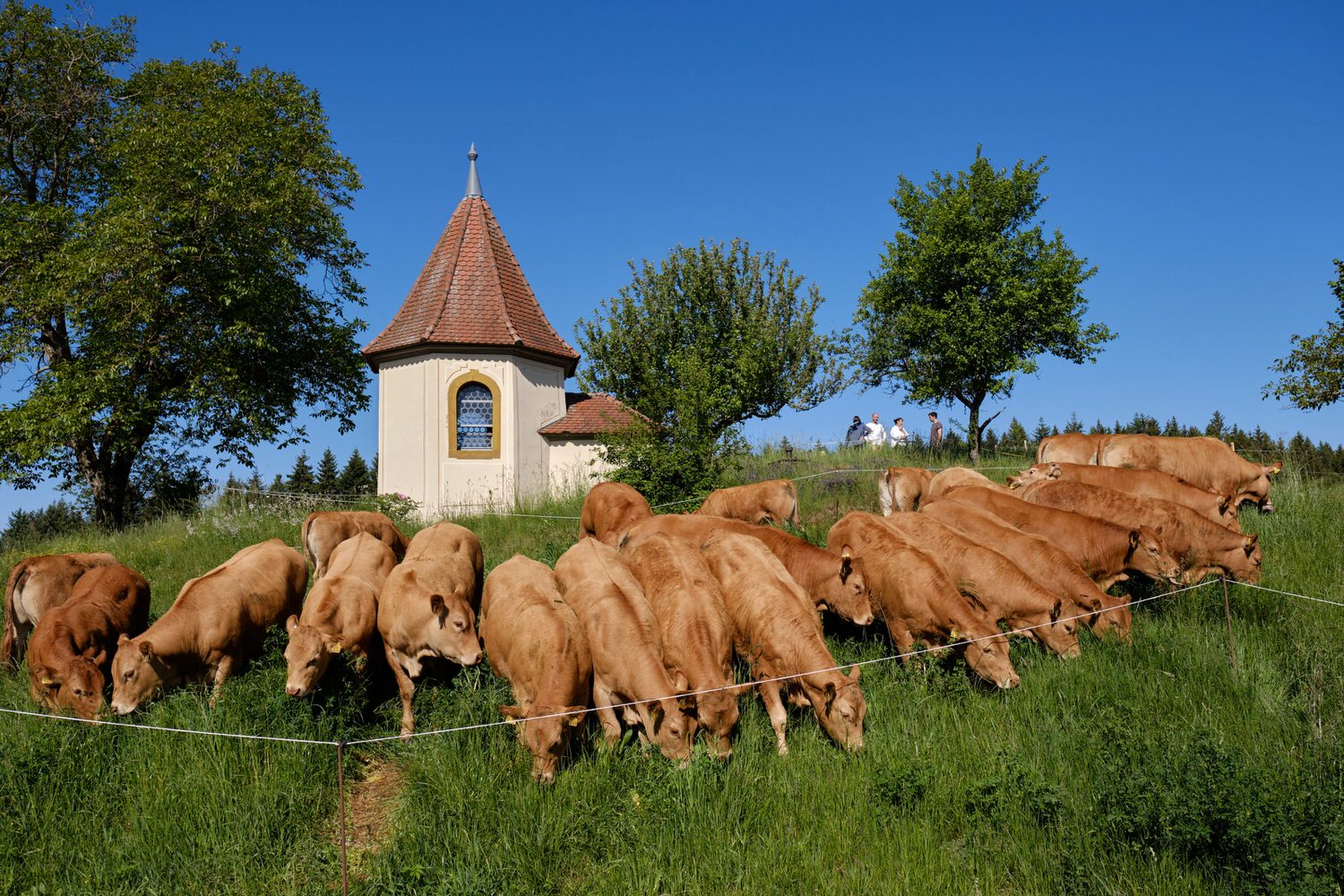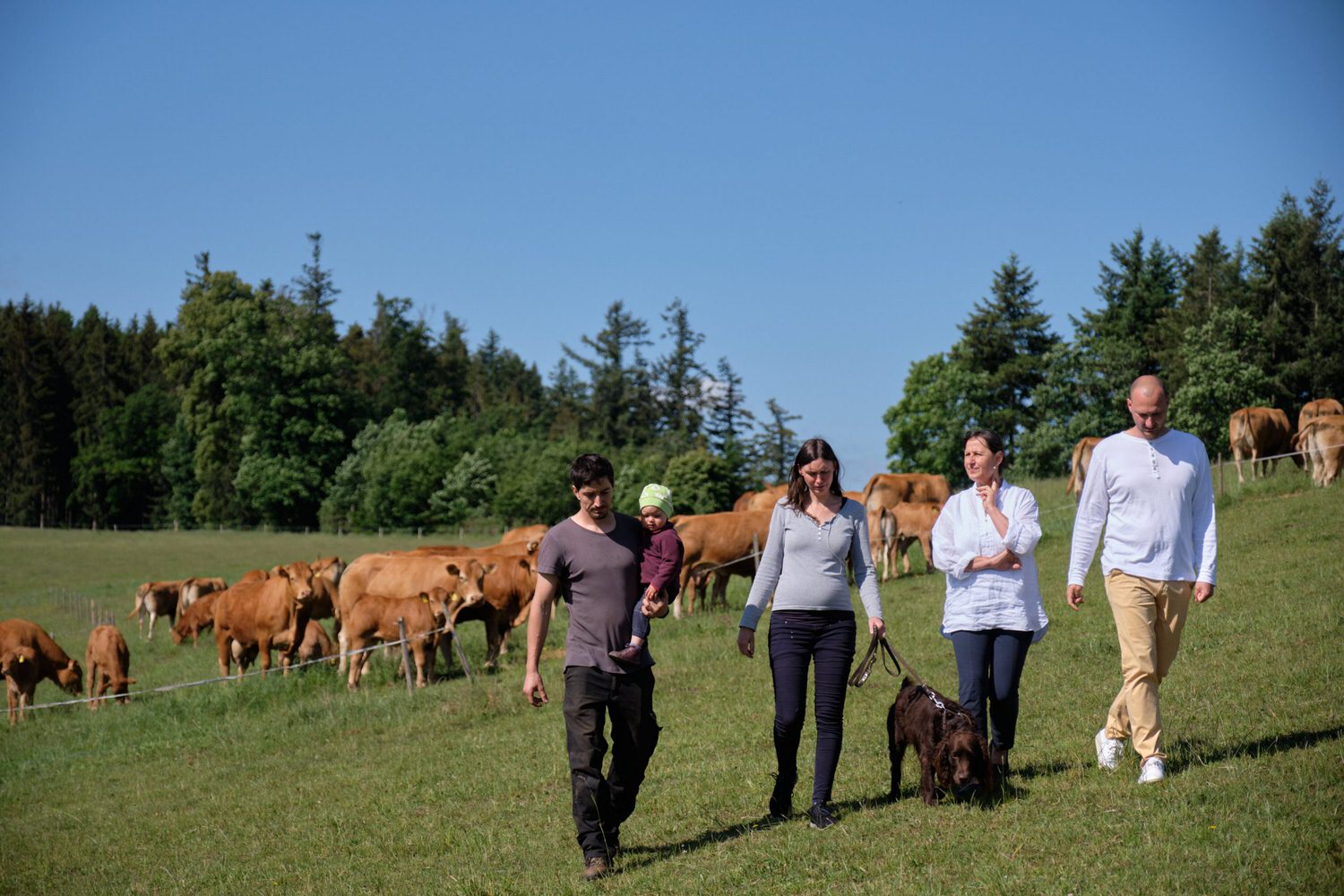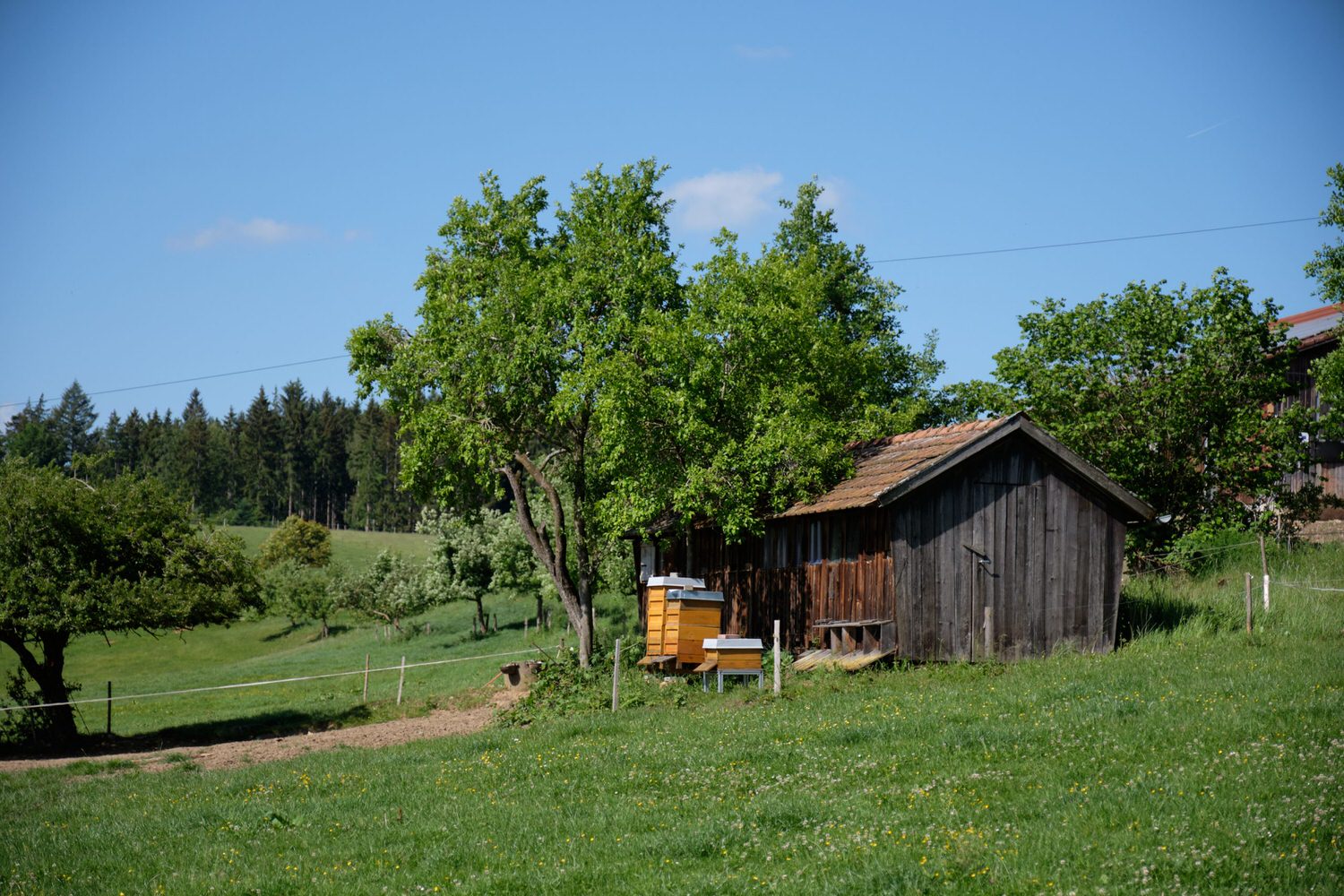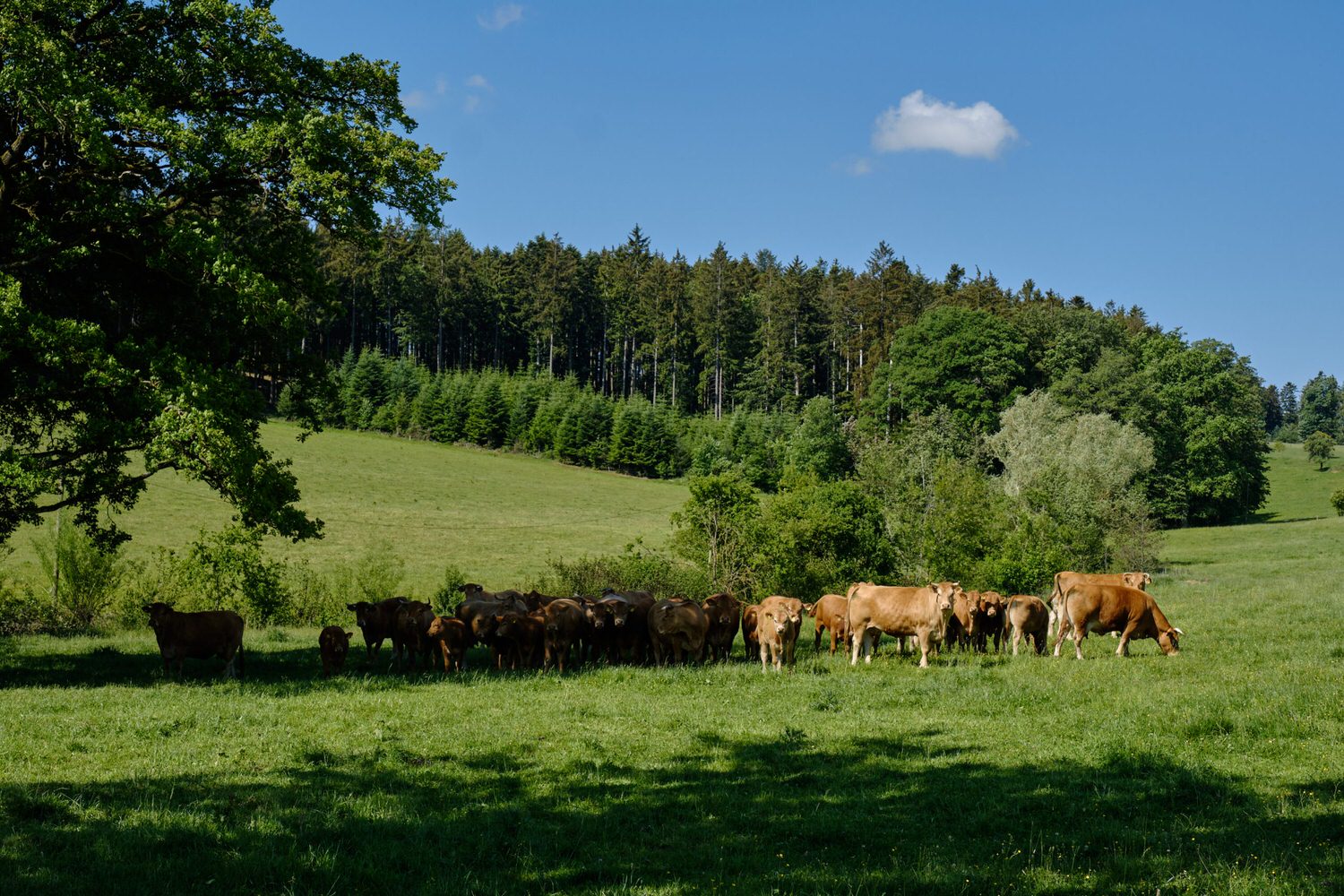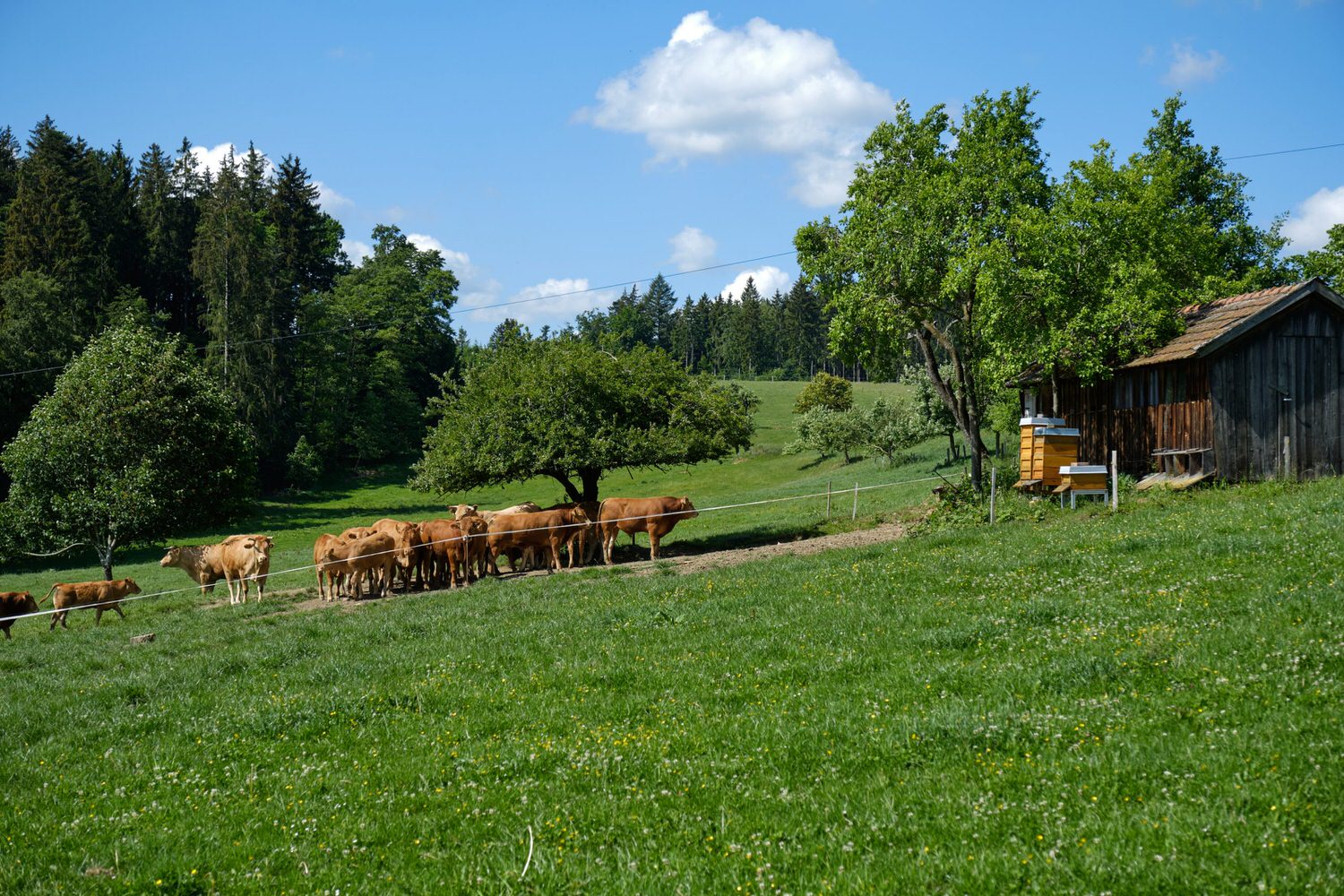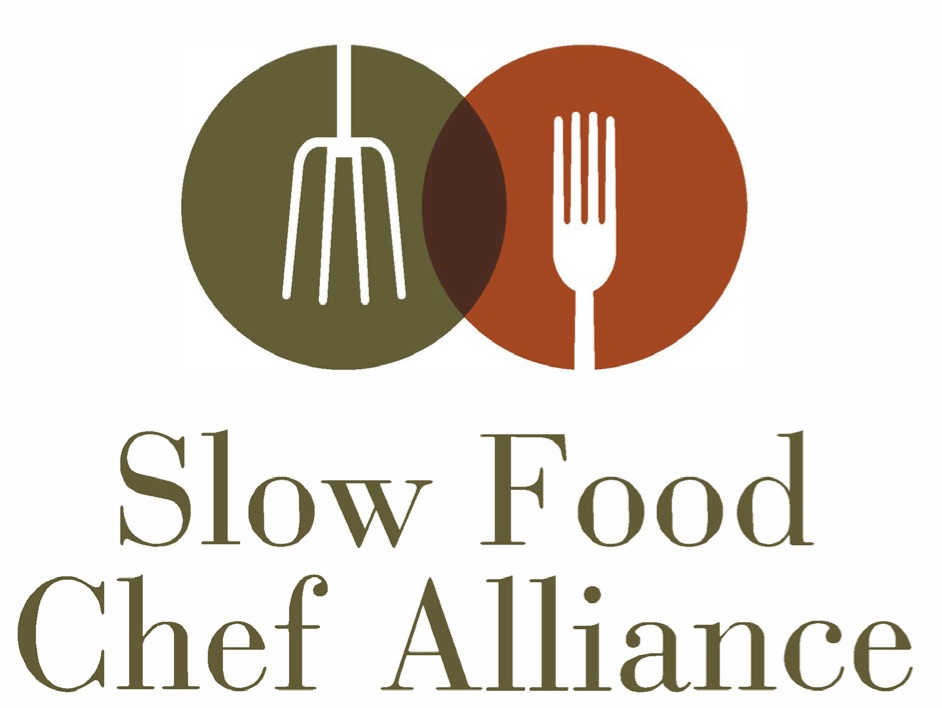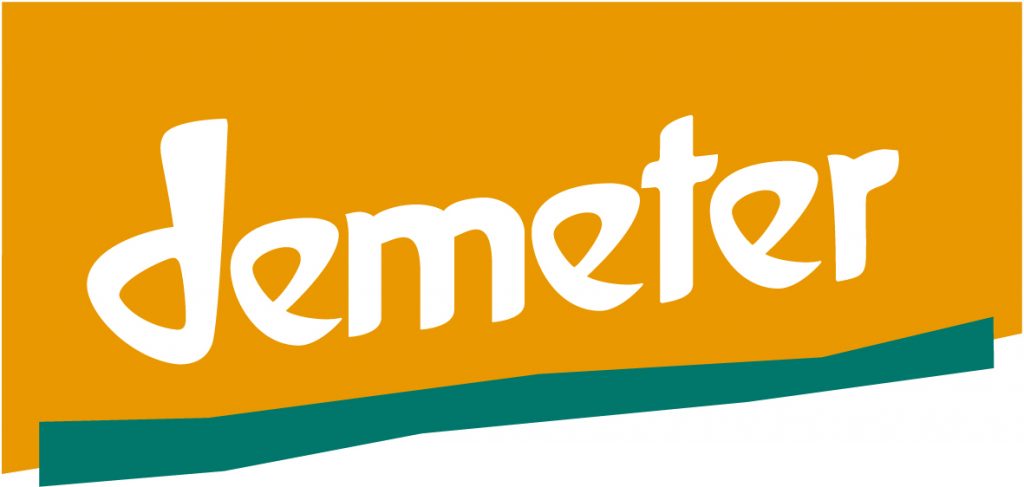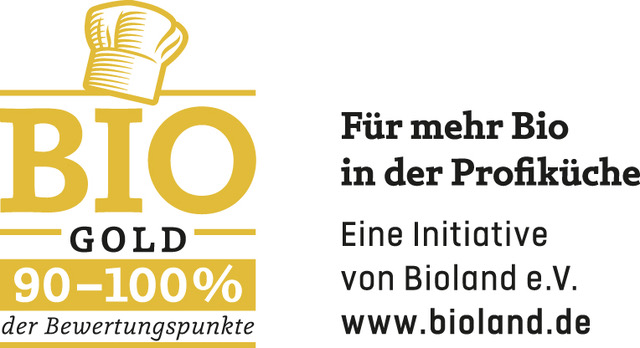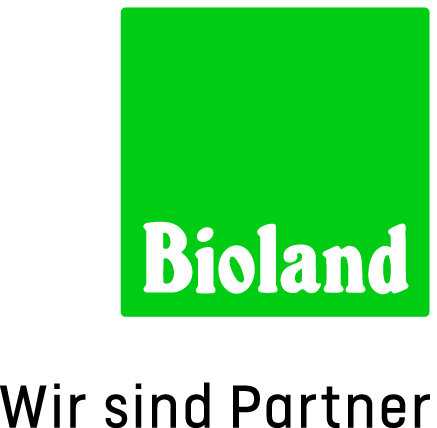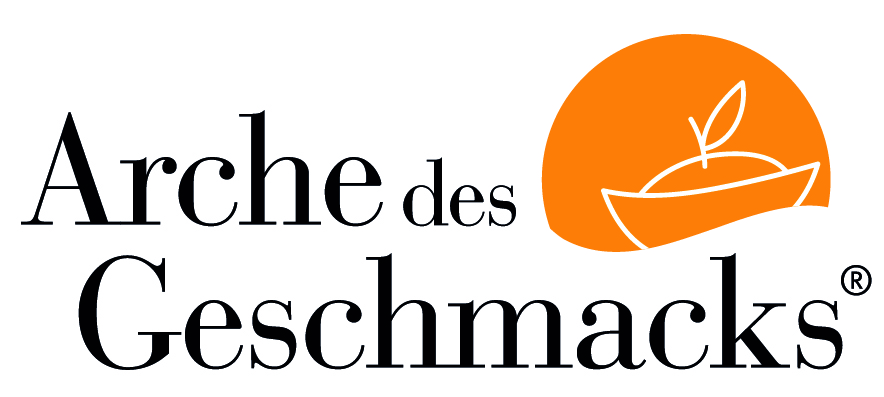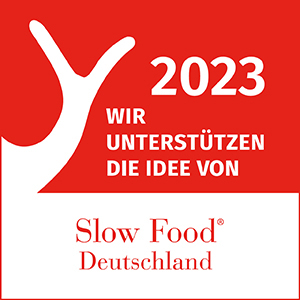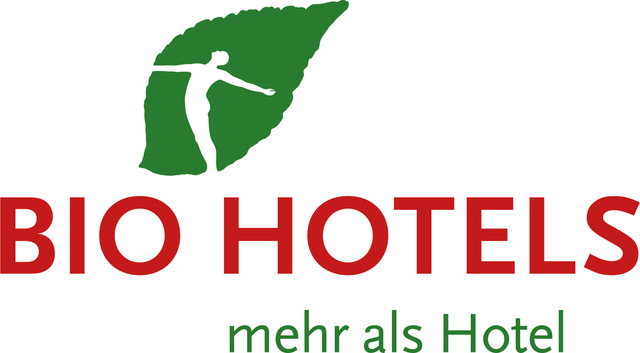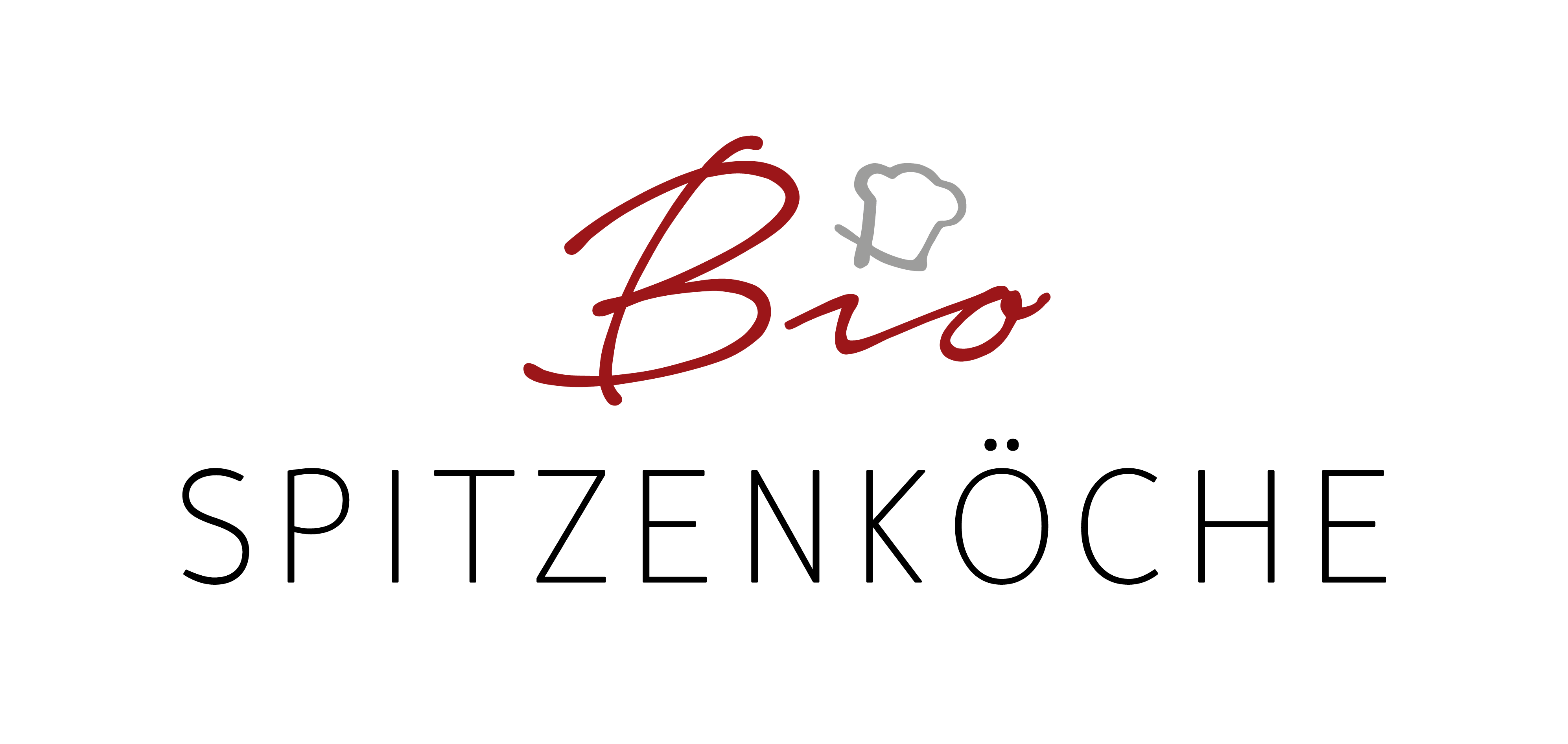Farmstead history
Our farmstead is embedded in the pristine, green landscape of the Ostalb. It is located on a high plain in the health resort of Bartholomä. Family-owned for more than 250 years, we are dearly connected to this special corner of the world.
"Over the years we have transformed the old farm into an organic restaurant where we attend to our guests with heart and soul."
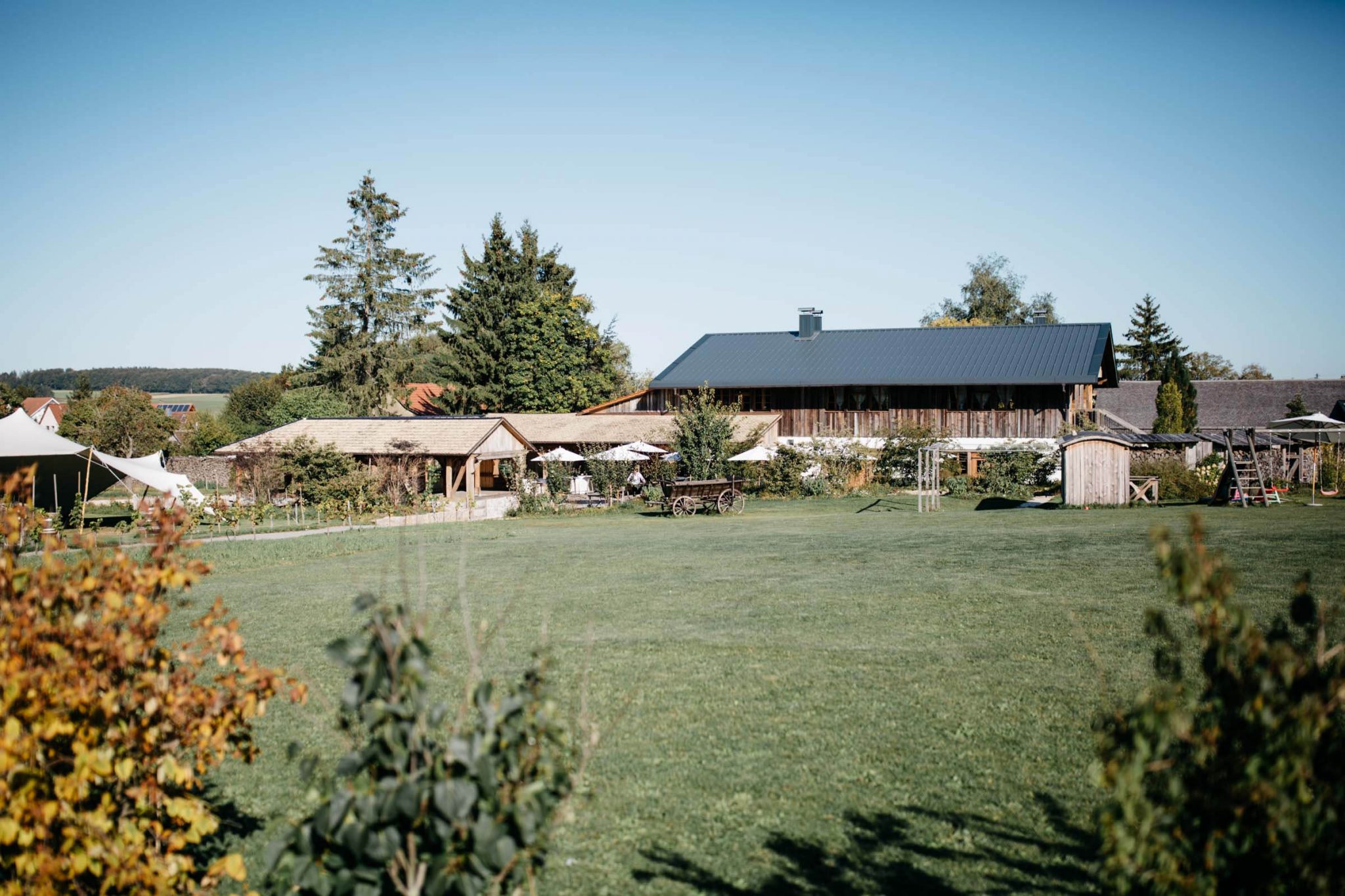
Den alten Bauernhof haben wir über die Jahre in eine Biogastronomie verwandelt, in der wir uns liebevoll um unsere Gäste kümmern. Wir richten Feiern aus, veranstalten Menüabende, haben eine kleine Kulturbühne und sind ein wundervoller Ort, um einen erholsamen Vacation in the Swabian Alb zu verbringen.

"The more we learned about these impressive practices and the vision for a better world, the more ambitions we developed to transform our farmstead into the gem it is today."
When we first came into contact with the Slow Food movement in 2009 through the project “From Earth to Plate”, a journey began that continues until today. A world opened up to us in which food tastes great and is healthy. A world in which food is produced and processed with extraordinary knowledge and skill, and in which its producers are fairly paid.
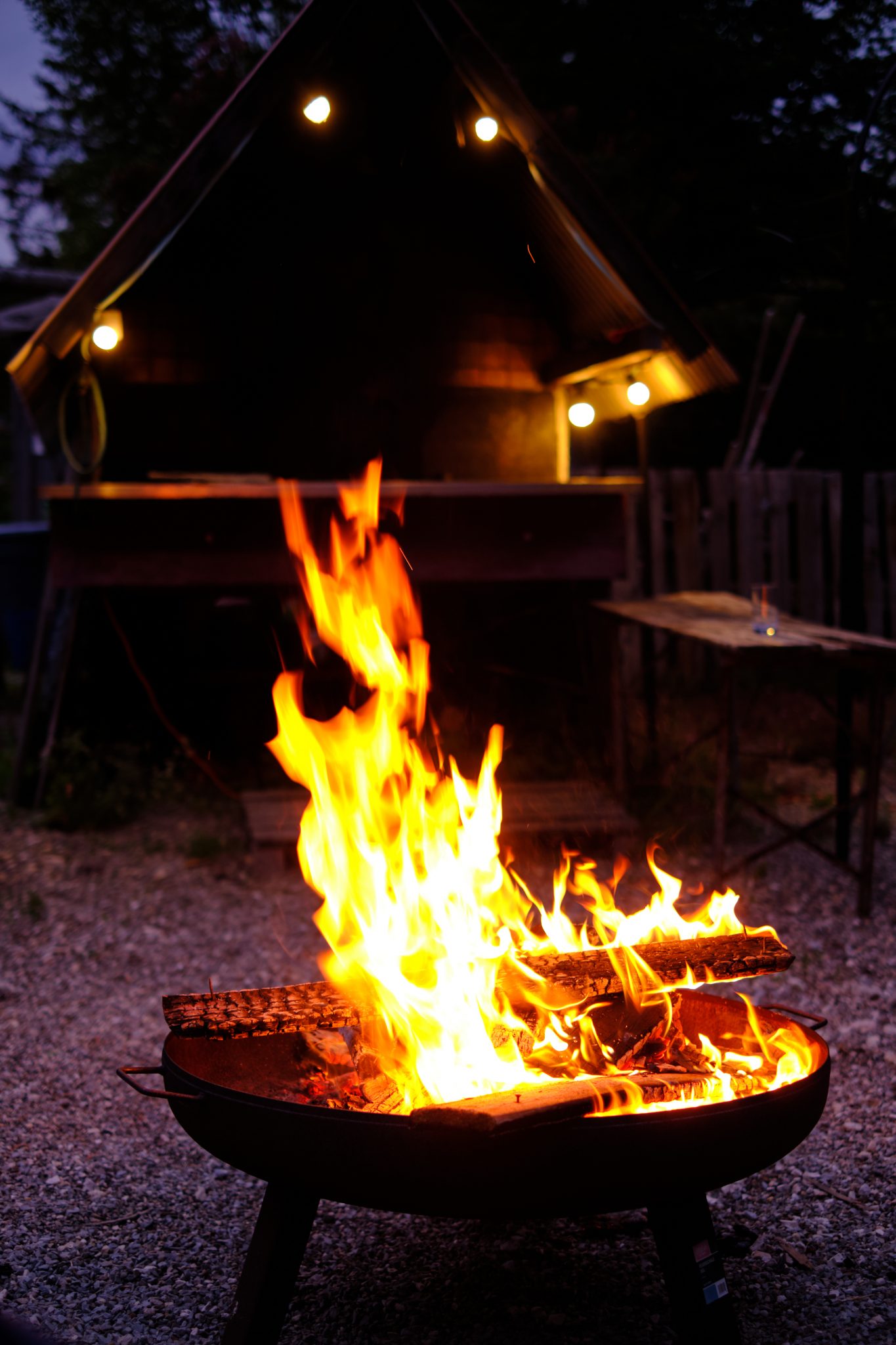
A world in which careful treatment of nature is just as self-evident as the preservation of old crops and breeds of livestock. The more we learned about these impressive practices and the vision for a better world, the more ambitions we developed to transform our farmstead into the gem it is today: A sustainable idyll in which our guests can leave their everyday lives behind to enjoy their time with us; to celebrate extensively while we take care of everything else. At the same time, our guests support a growing network of future-oriented entrepreneurs with every visit.
Philosophy
We believe that enjoyment is greatest when people and nature are in harmony. Making this a reality is our focus with every dish we serve.
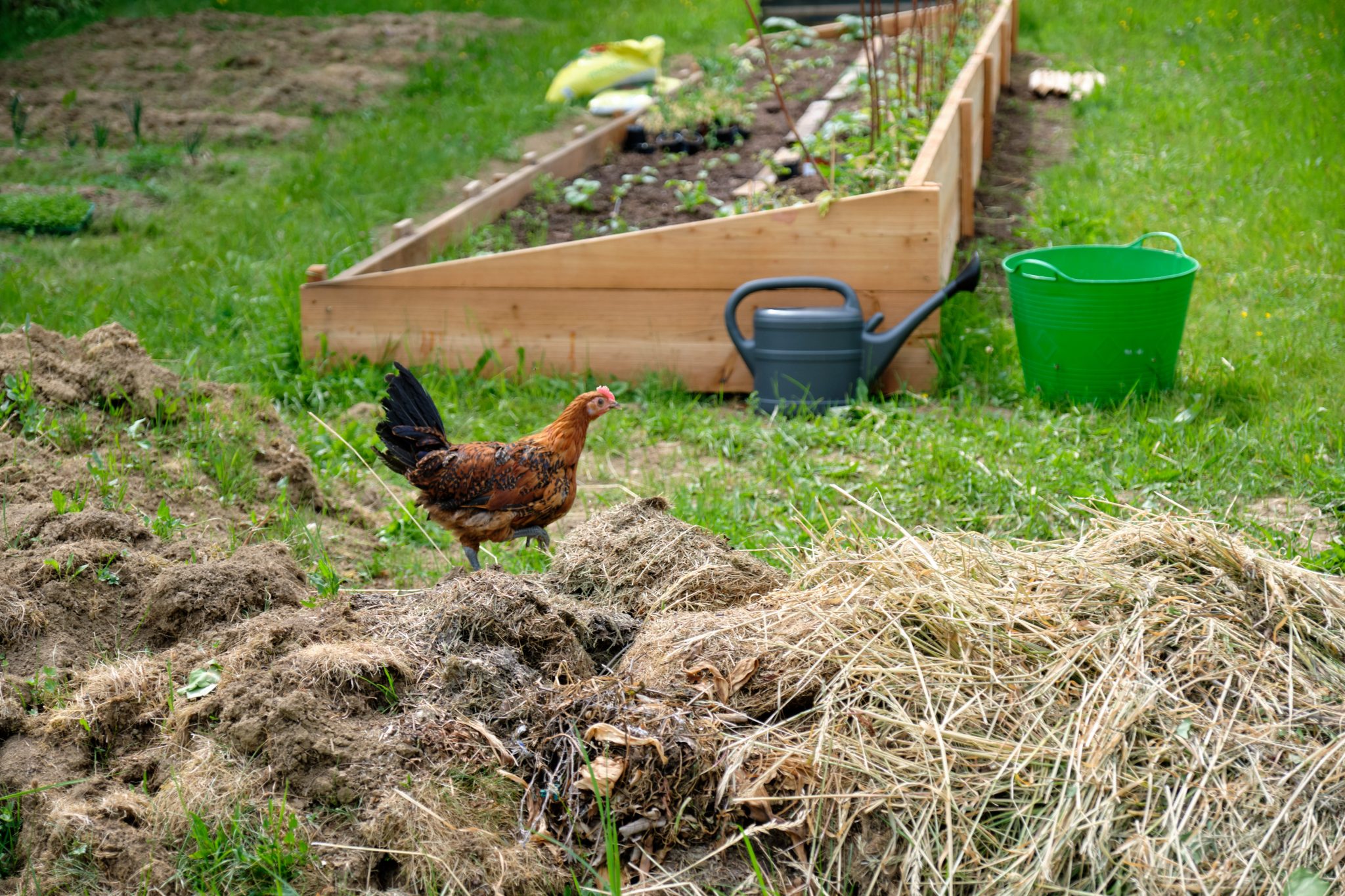
We grow some of our vegetables and all our herbs ourselves. We have planted orchards with rare, ancient fruit varieties. We keep ancient chicken breeds and a few ducks, and we bake our own bread and delicious pastries in our wood-fired ovens.
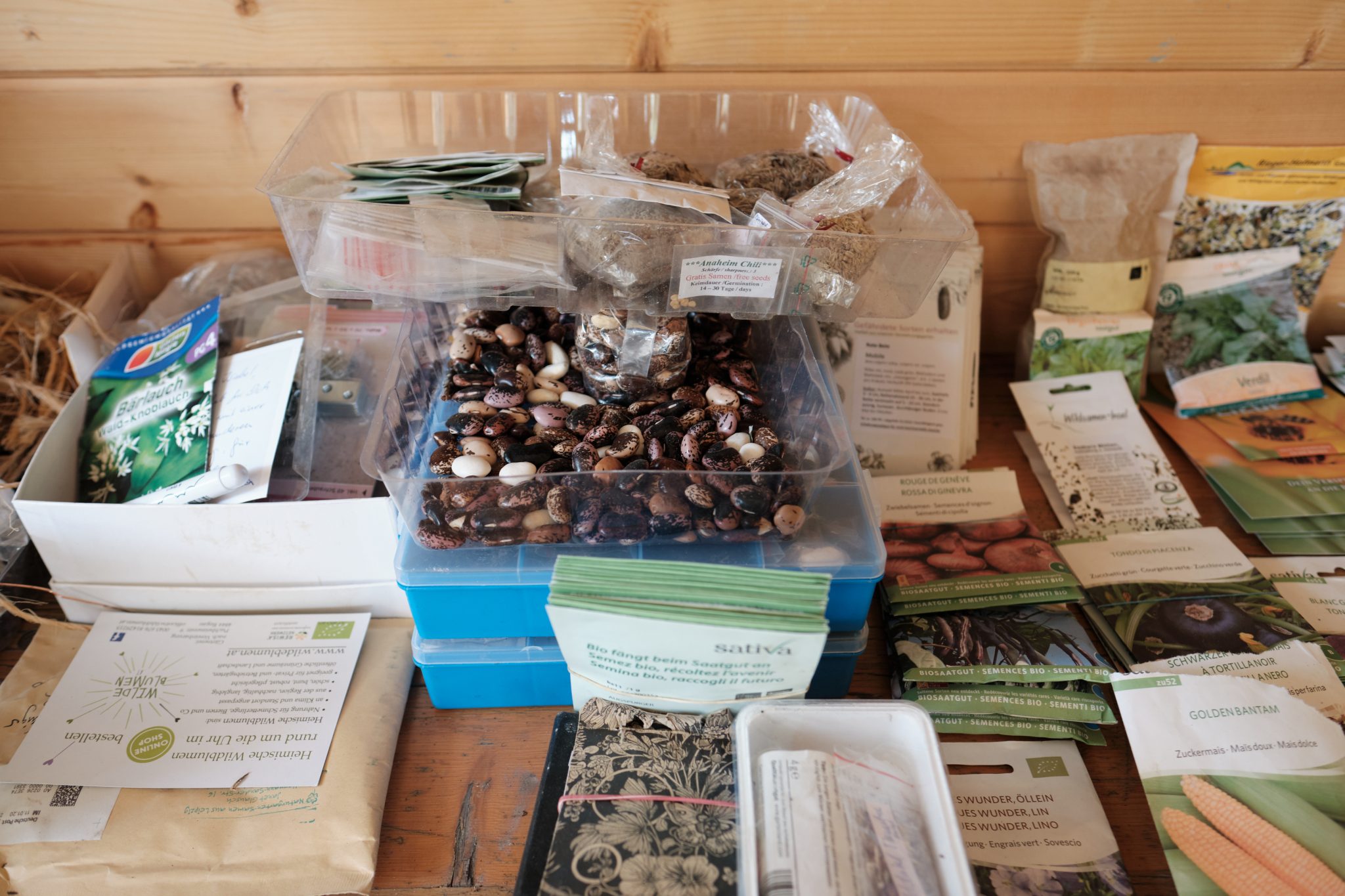
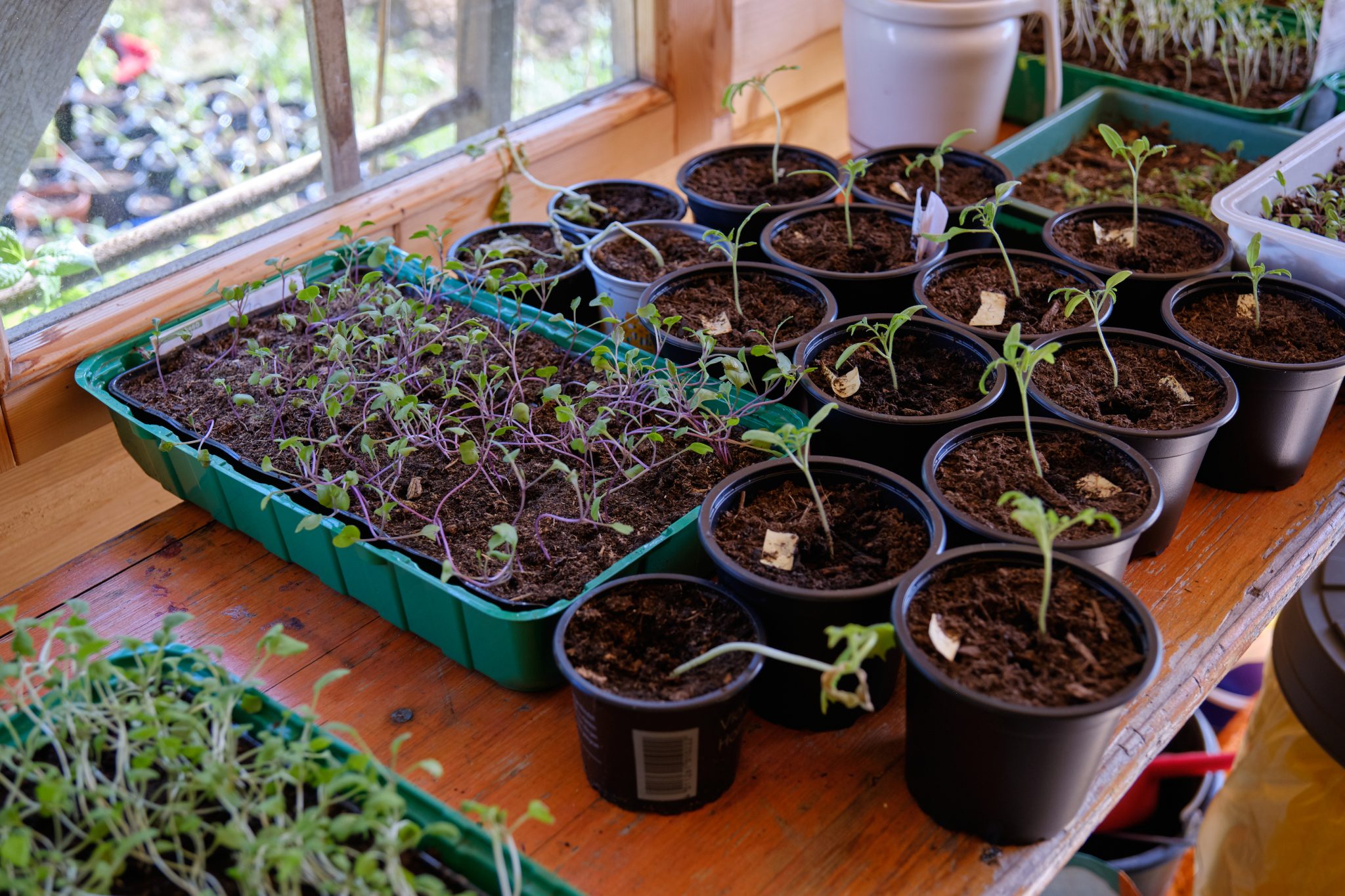
"It is important for us to contribute to a more diverse and healthier region, and to strengthen the resilience and biodiversity of our food chains. Thus, we consciously started looking for ancient, seed-resistant varieties."
Wir haben die ehemalige Scheune, den Kuhstall und die Werkstatt zu einladenden, stilvollen Veranstaltungsräumen umgebaut. Alle drei Gebäude liegen in wunderschönen Gärten, die unseren Gästen ein ungestörtes Feiern bei Schwäbisch Gmünd ermöglichen. Zugleich bieten die Gärten einheimischen Pflanzen, Tieren und Insekten einen wichtigen Lebensraum. Zum Übernachten stehen vier gemütliche Häuser mit Garten als ideale Unterkunft auf der Schwäbischen Alb zur Verfügung. Unsere Leinenwäsche pflegen wir sorgfältig in unserer eigenen Wäscherei und unsere Floristinnen binden von Hand die Blumen für die Dekoration der Räume. In unserem Eventbüro planen wir Kulturveranstaltungen und Feierlichkeiten bis ins Detail, damit unsere Gäste sich um nichts kümmern müssen.
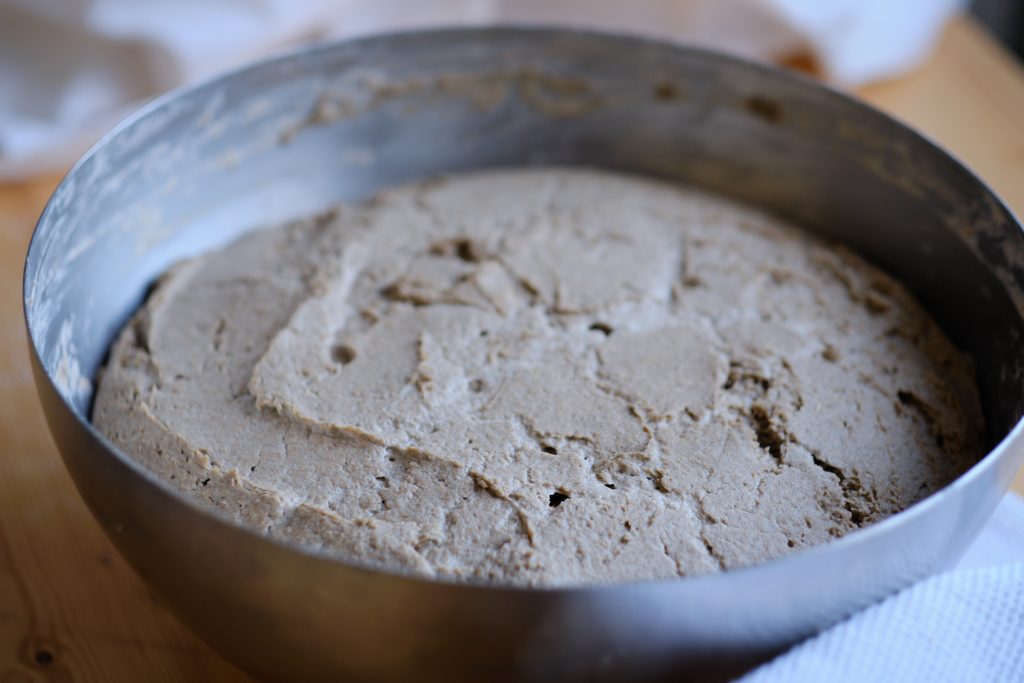
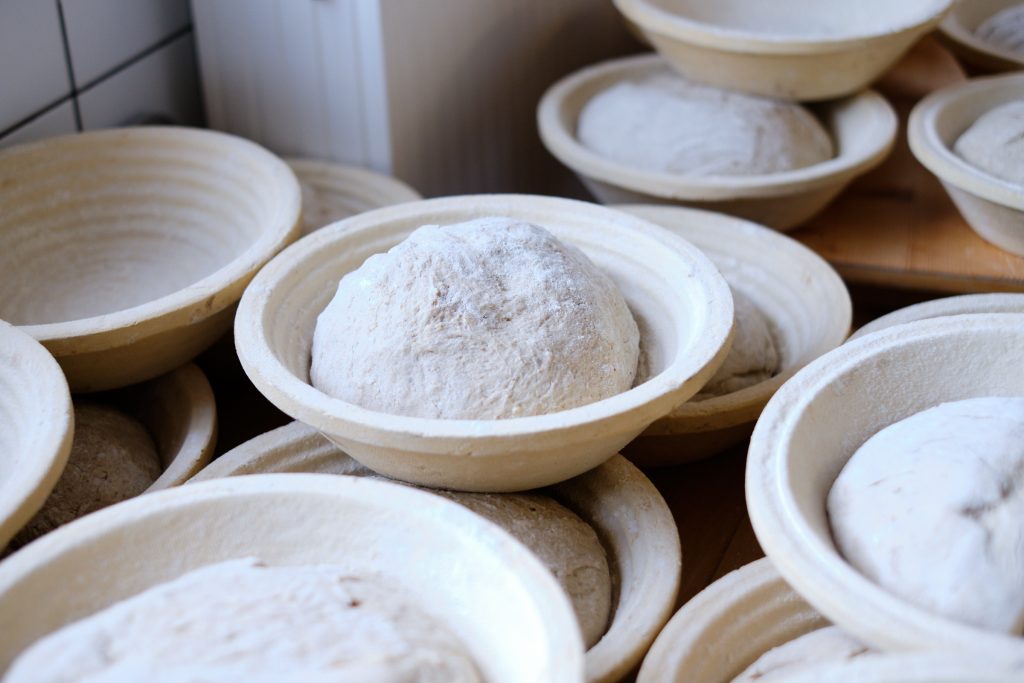
"The result is food of outstanding quality that we handle with great respect."
It is important for us to contribute to a more diverse and healthier region, and to strengthen the resilience and biodiversity of our food chains. Thus, we consciously started looking for ancient, seed-resistant varieties. Their yield is often lower and not always flawless, but they are more robust and flavorful. You can taste the difference on the plate and at the same time we can preserve a bit of diversity. The same goes for the animals. We have found farmers who keep and raise animals for us that used to be typical of our region, but are now almost extinct. We make sure that the animals spend the bulk of their time outdoors, and that they are slaughtered humanely - if possible, directly on the farm. At the same time, we support an expanded range of alternative protein sources, such as Swabian lentils.
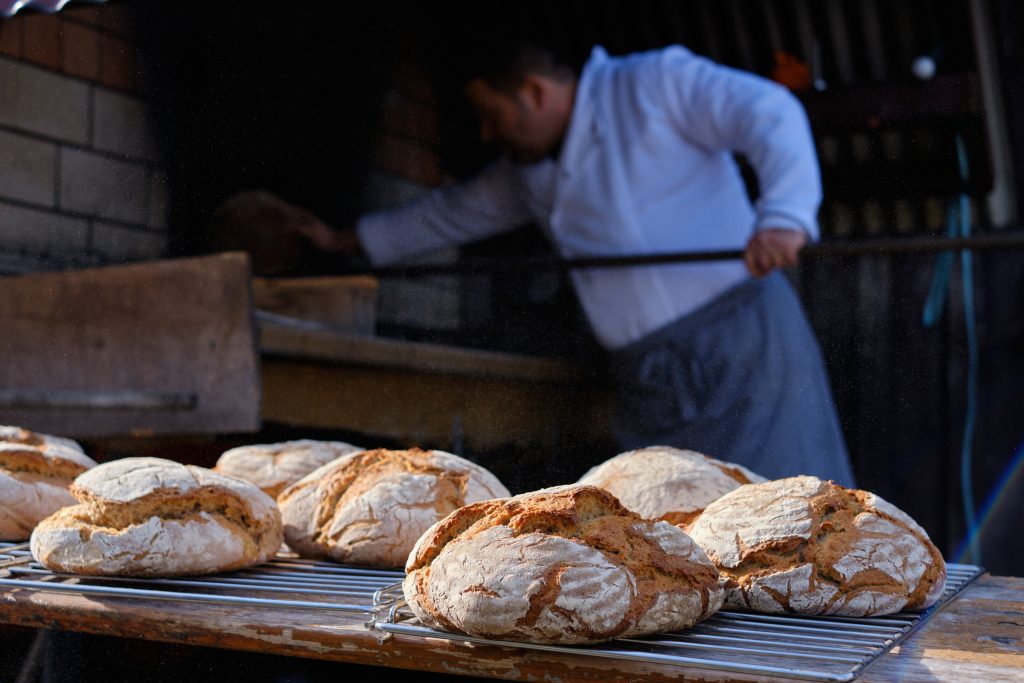
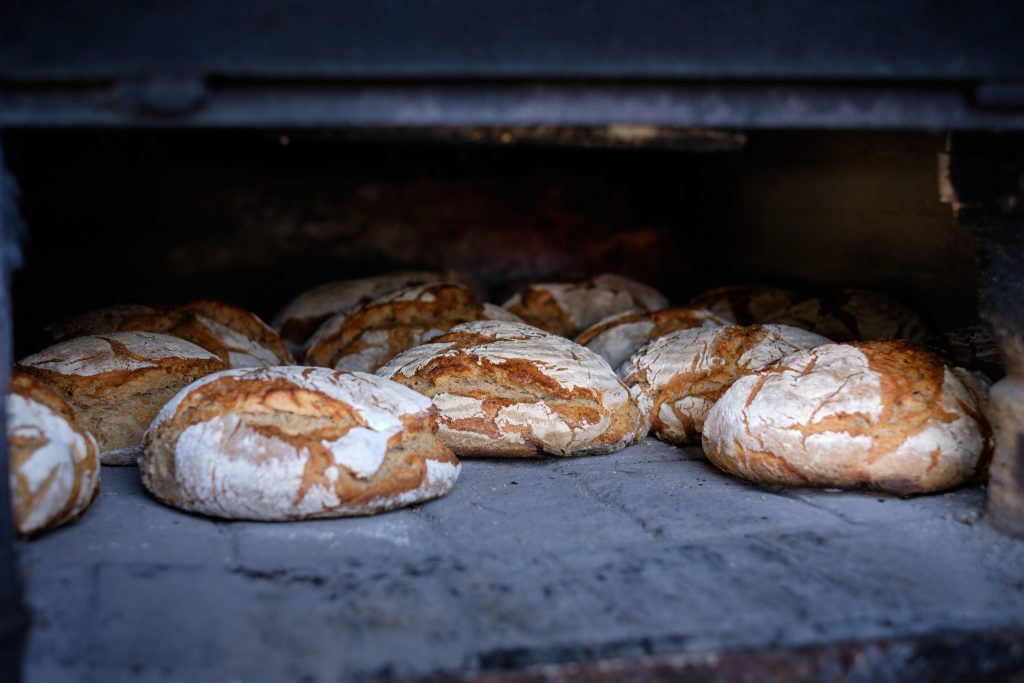
The result is food of outstanding quality that we handle with great respect. Nothing goes unused, because everything is part of the cycle: We use vegetables from roots to leaves and compost any waste so that our soils remain well-nourished and fertile. In the case of the animals, we also process everything from snout to tail. For this reason, we have learned traditional methods of meat maturation and make sausage and bouillon in-house.
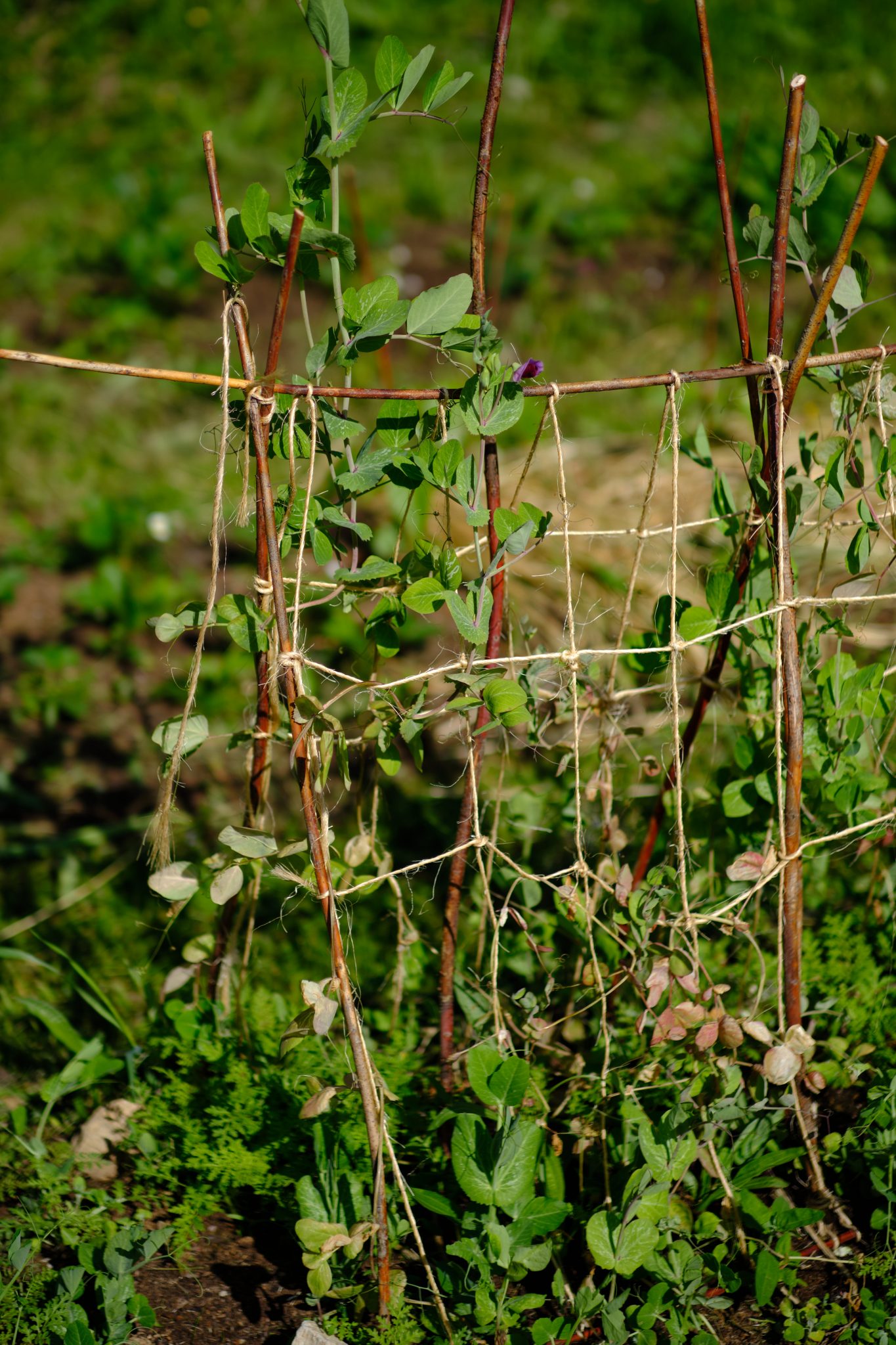
We are curious, inventive and love to learn. That's why there is always one or the other project through which we experiment with a new aspect to become even more sustainable. We are currently creating a permaculture garden and gaining further experience with ethical bee keeping. Like this, we're taking small steps back to our own farming roots.
Partner
It is important to us that we know exactly where our products come from and how they are grown. All of our food is farmed without the use of chemical pesticides or artificial fertilizers. Medicines for animals (especially antibiotics) are administered, if at all, only according to the strictest regulations and in emergencies.
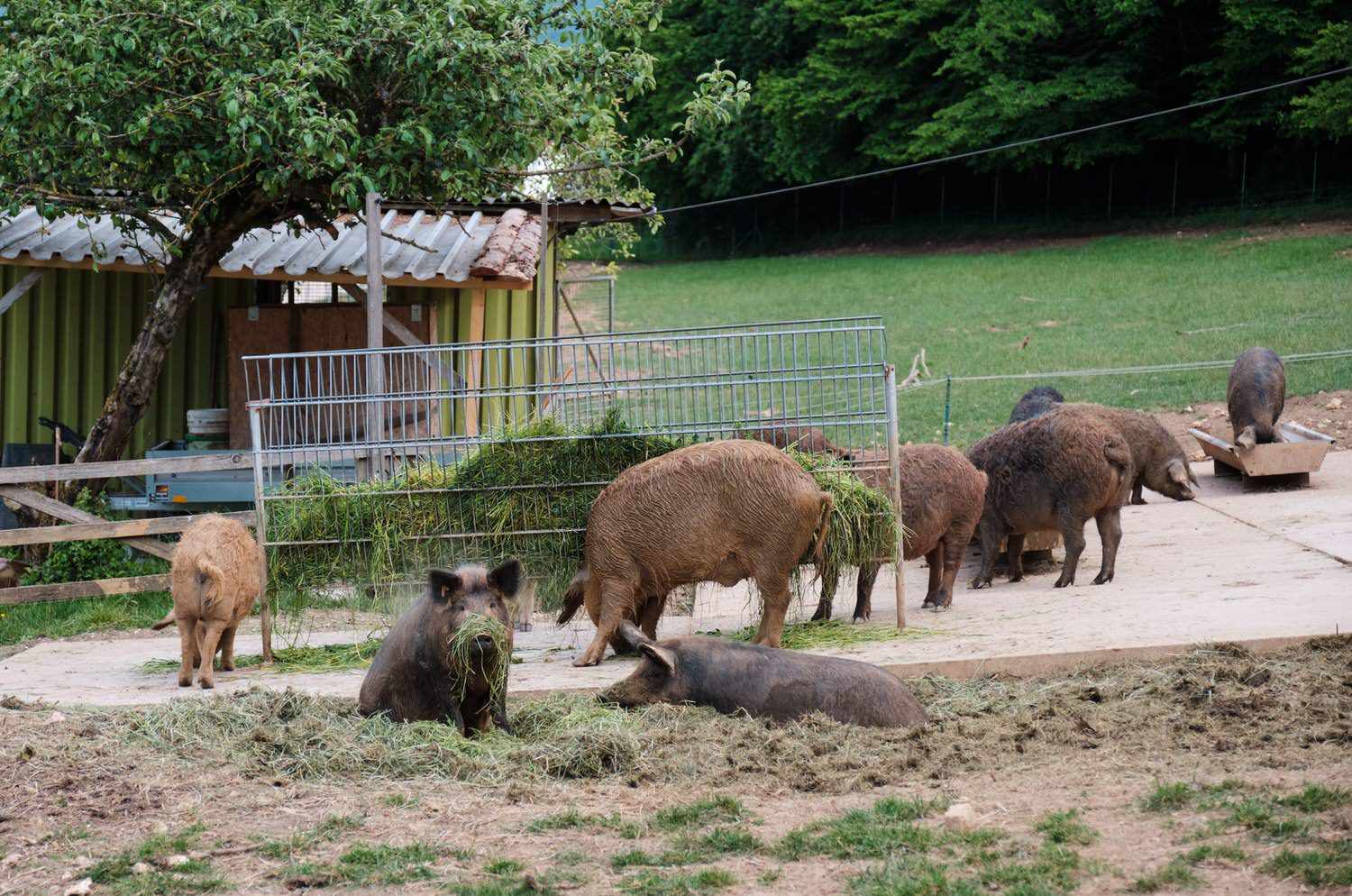
"The farmers are all certified organic and mostly work according to the much higher standards of Bioland or Demeter."
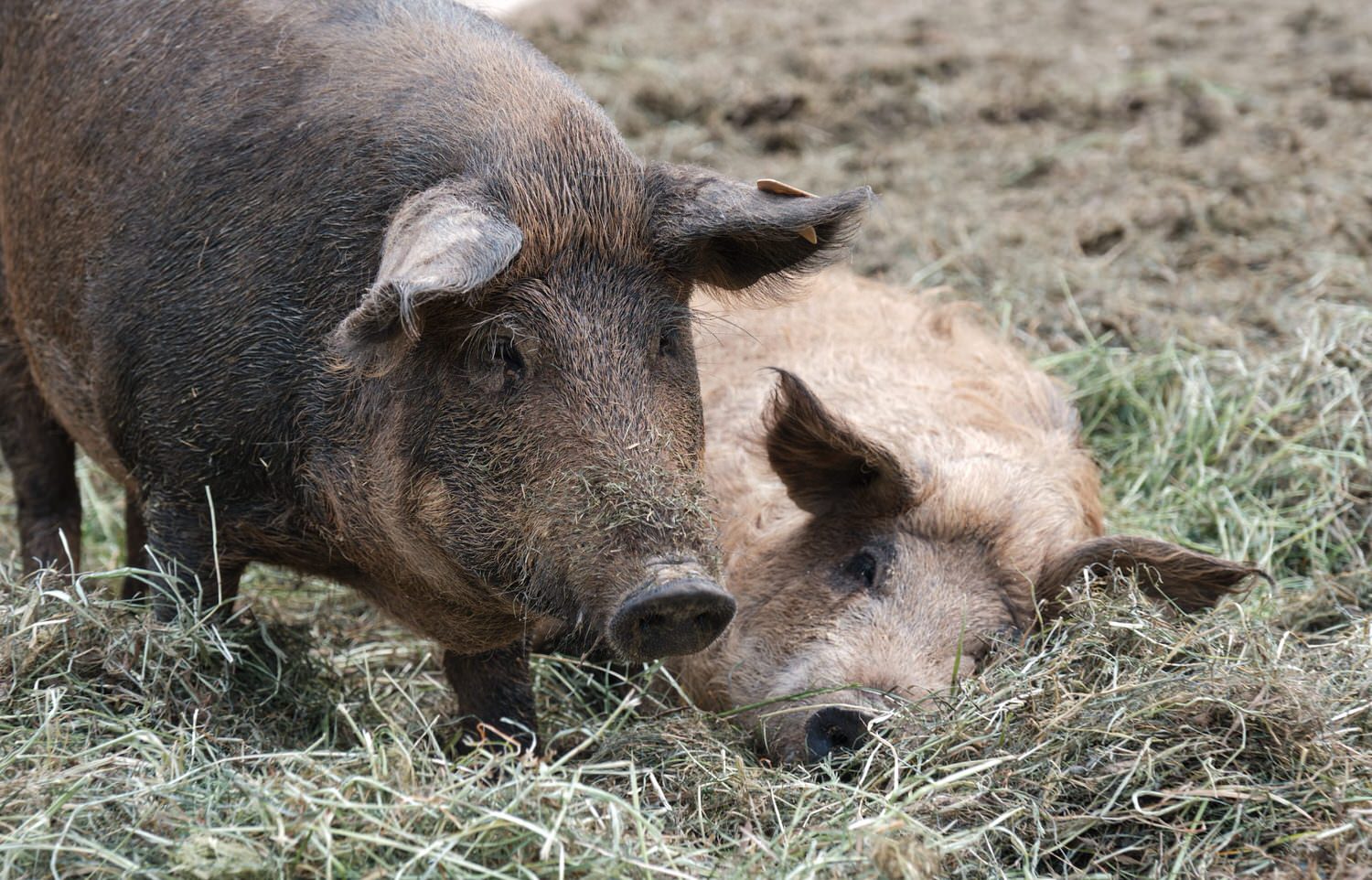
The farmers are all certified organic and mostly work to the much higher standards of Bioland or Demeter. These partners fully dedicate their lives to ecologically sustainable agriculture.
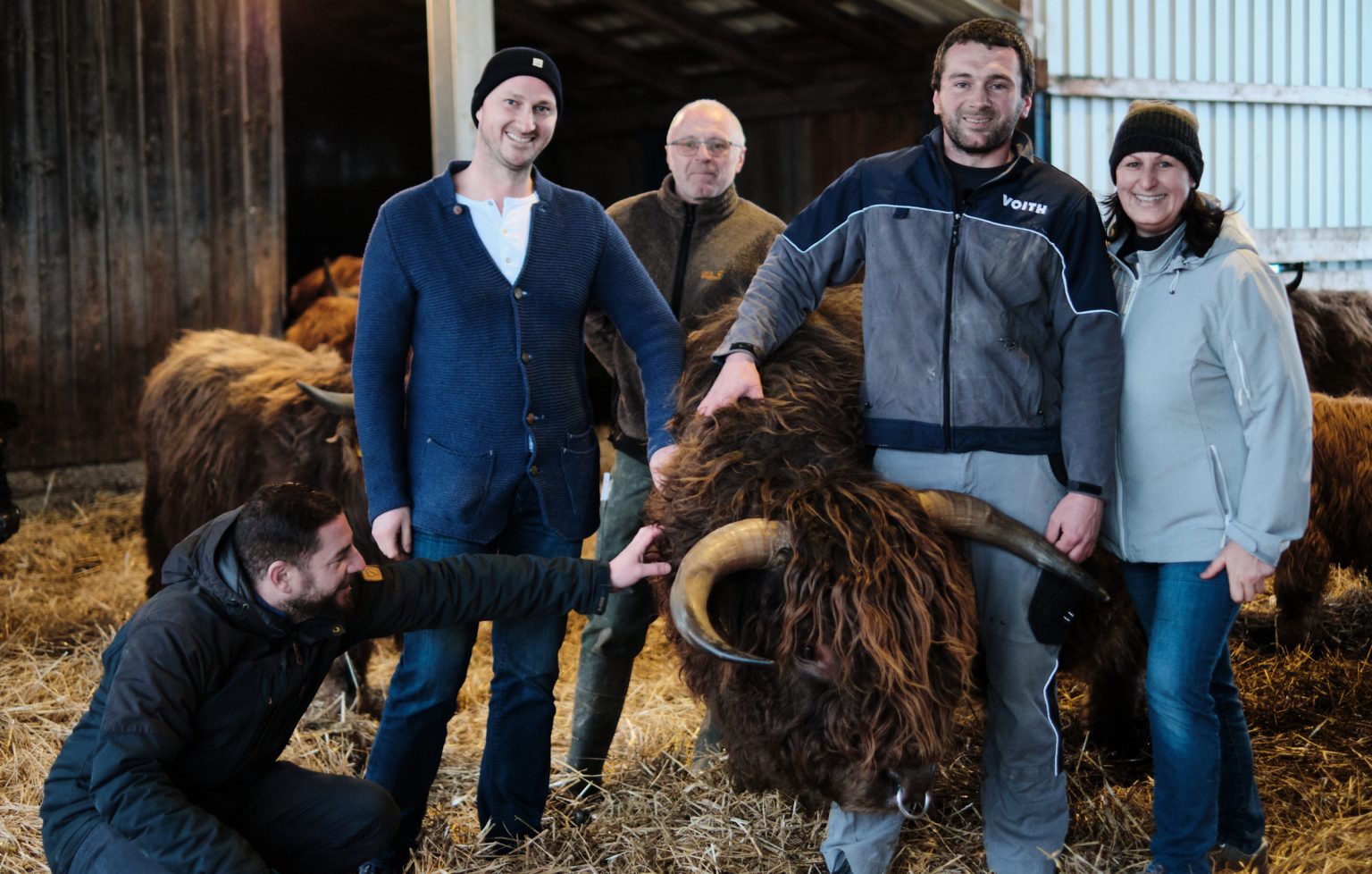
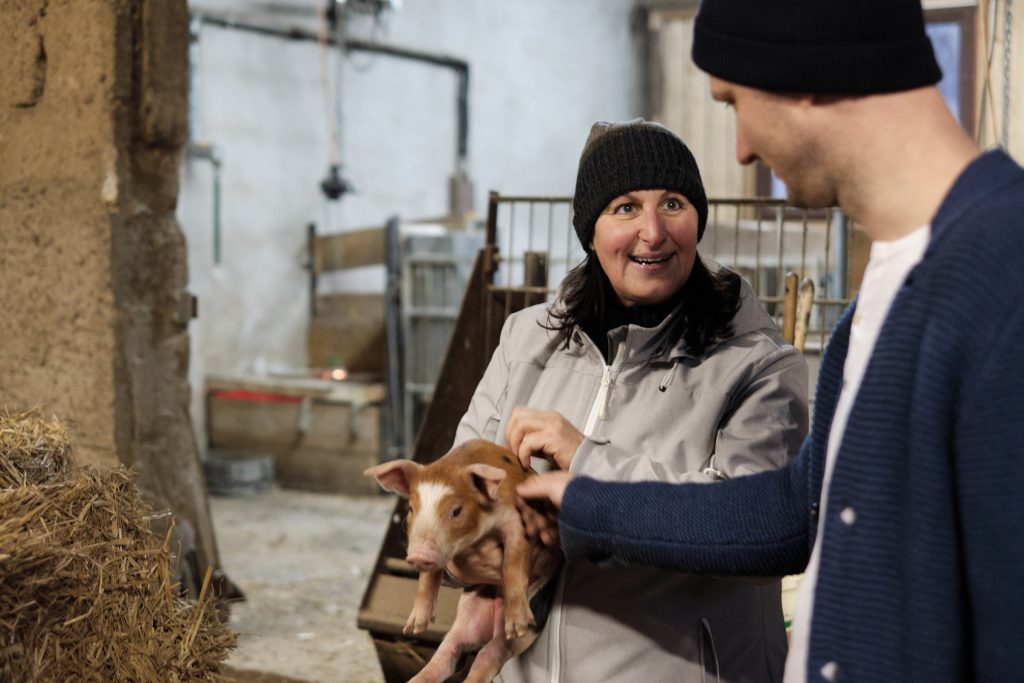
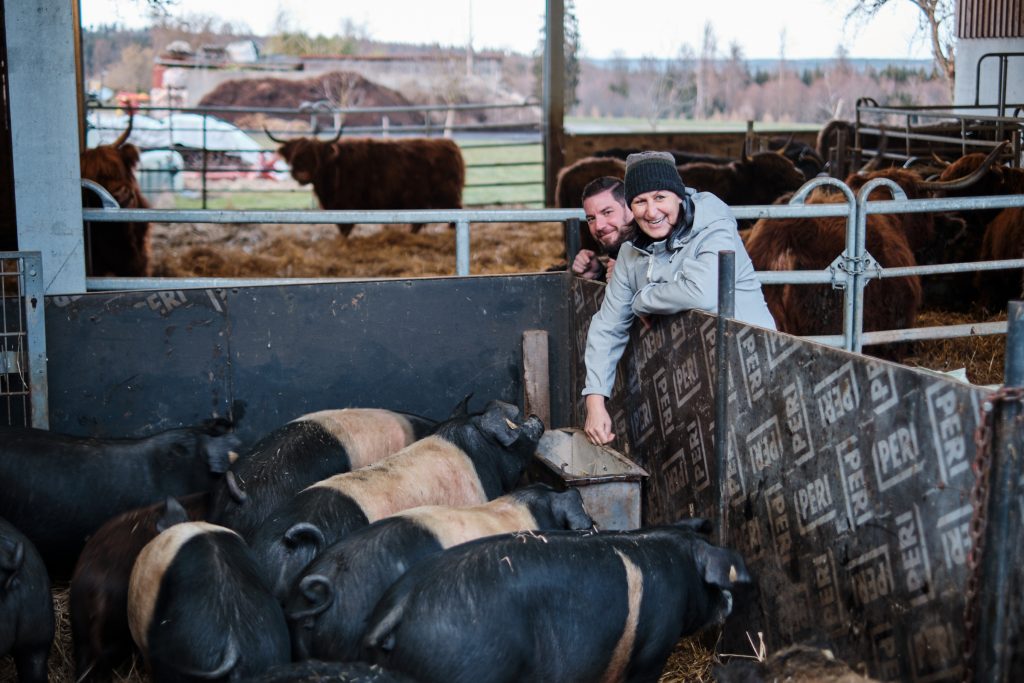
"We searched long and hard to find them, and carefully cultivate these relationships. We visit our suppliers again and again to see how things are grown. We also bring our kitchen team to the farms so that they can experience first-hand where our products come from.
We supplement organic products with wild harvests from our region. Here, too, we have established relationships with hunters and foragers who have partnered with us for years and ensure the quality of the products."
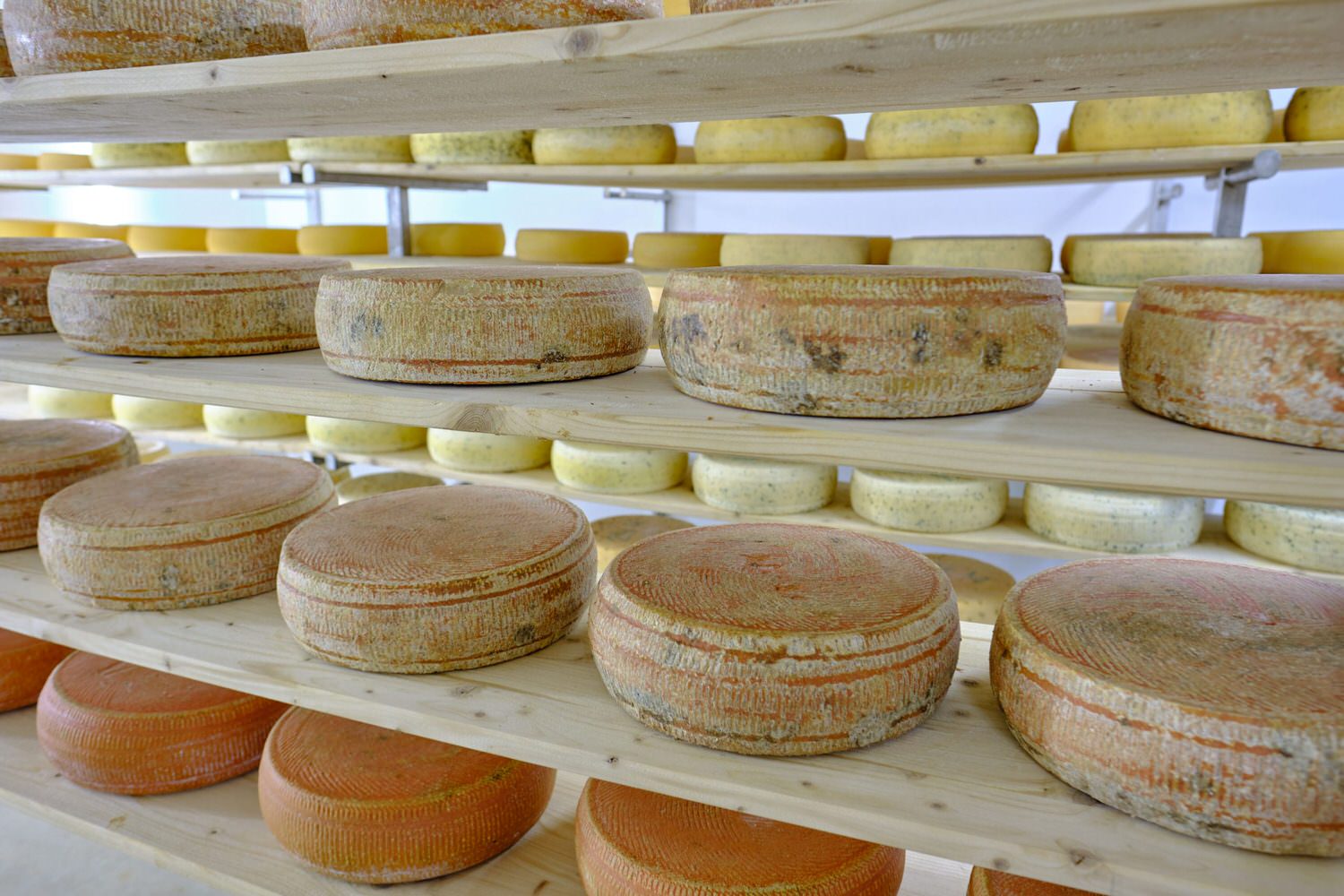
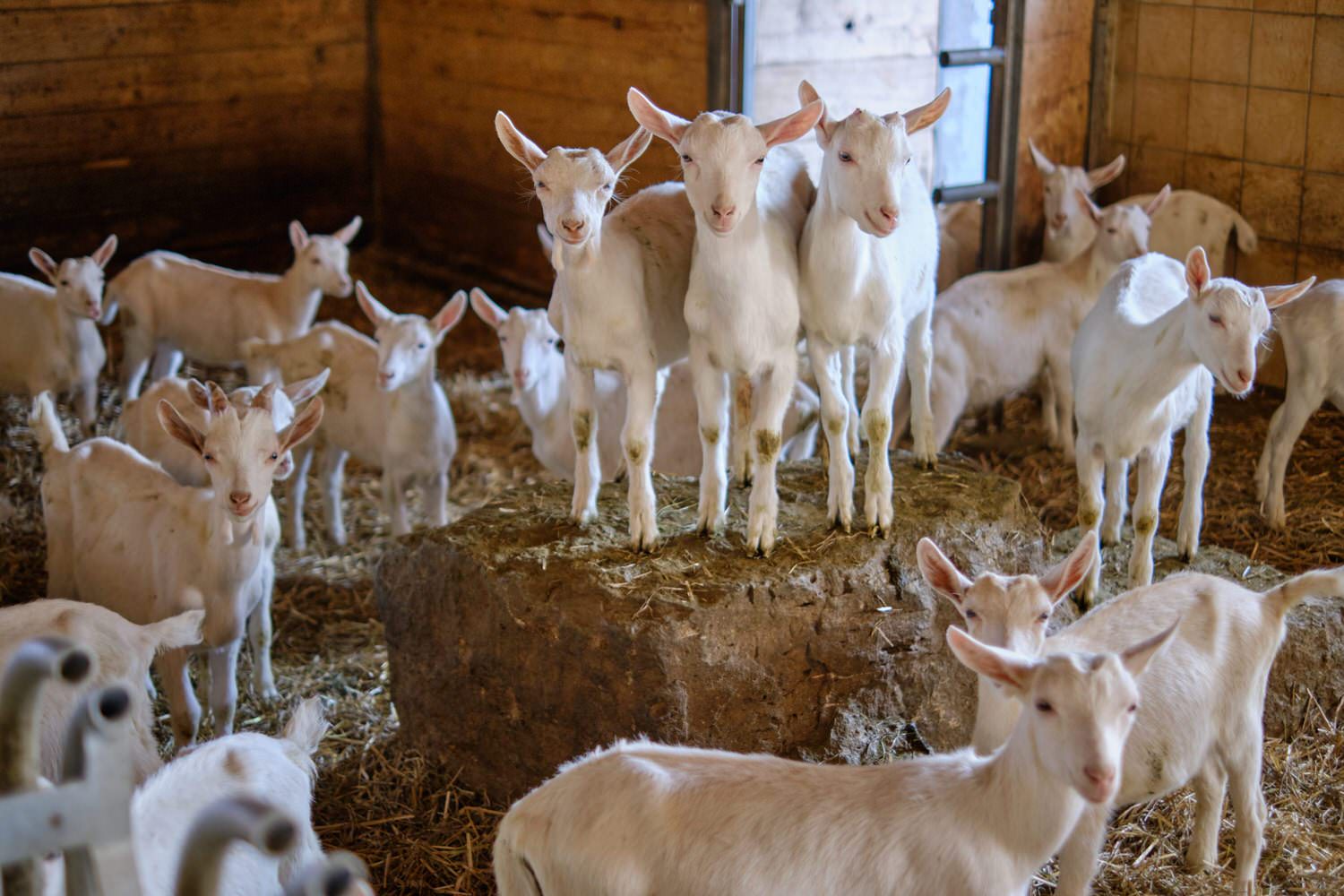
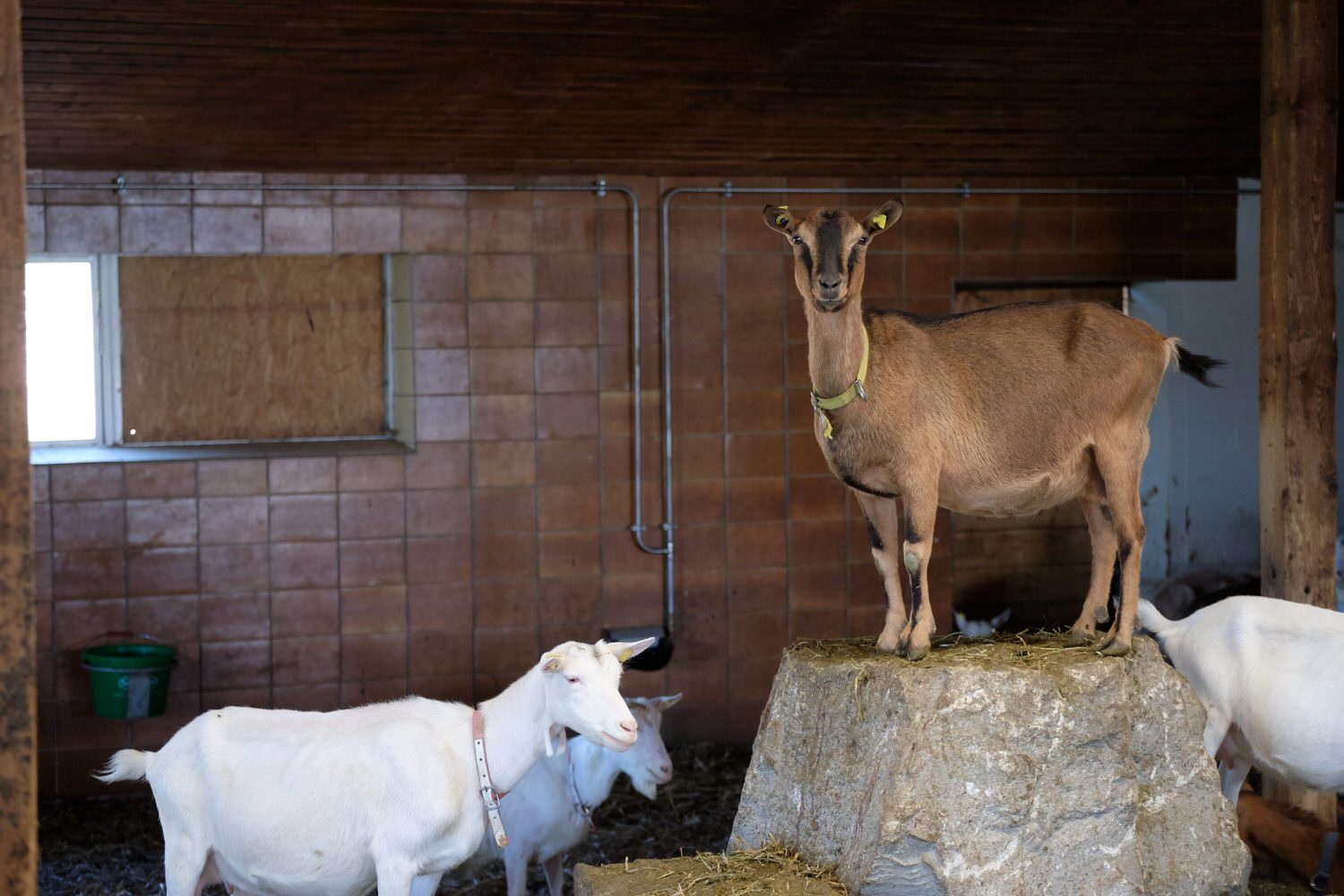
"We attach great importance to working in eye-level partnership with our suppliers from near and far and to strengthen rural structures."
For the most part, we source our products from within a radius of 50 km and try to keep the distances as short as possible. For products like coffee or lemons that don't grow here, we of course deal with longer delivery routes. But here too, we pay attention to the same high standards as used for our other partners. We attach great importance to working in eye-level partnership with our suppliers from near and far and to strengthen rural structures.
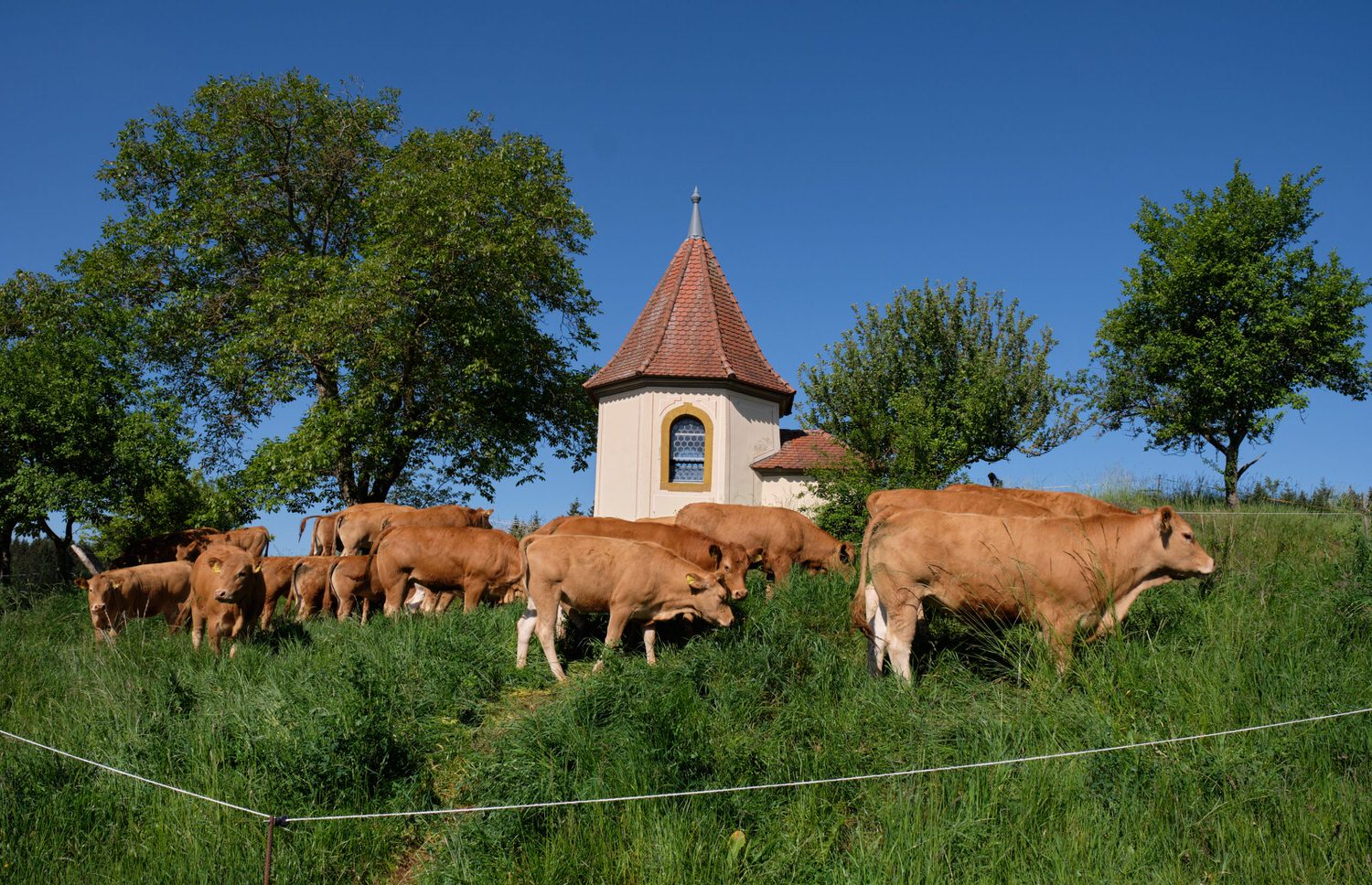
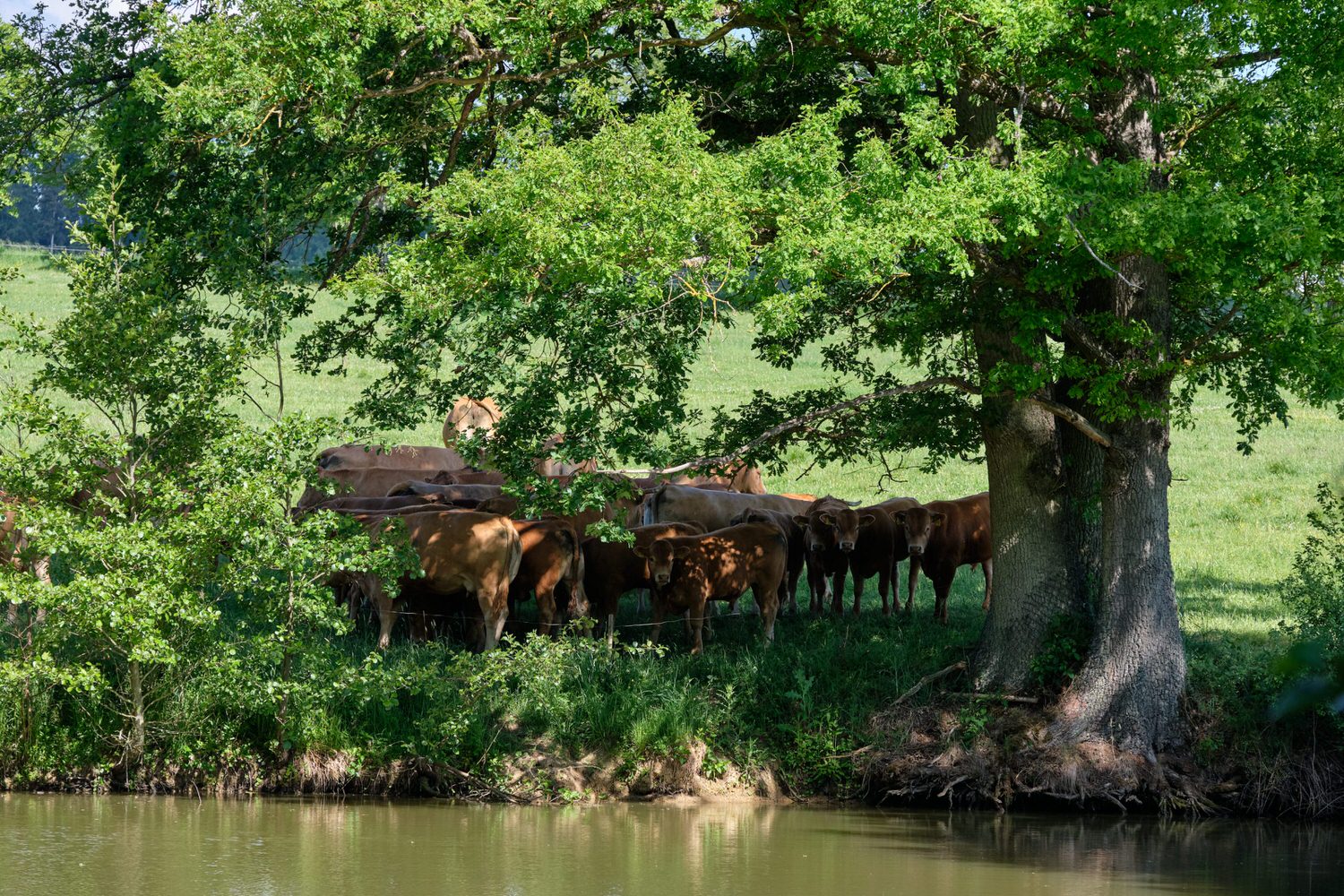
"We searched long and hard to find them and carefully cultivate these relationships."
